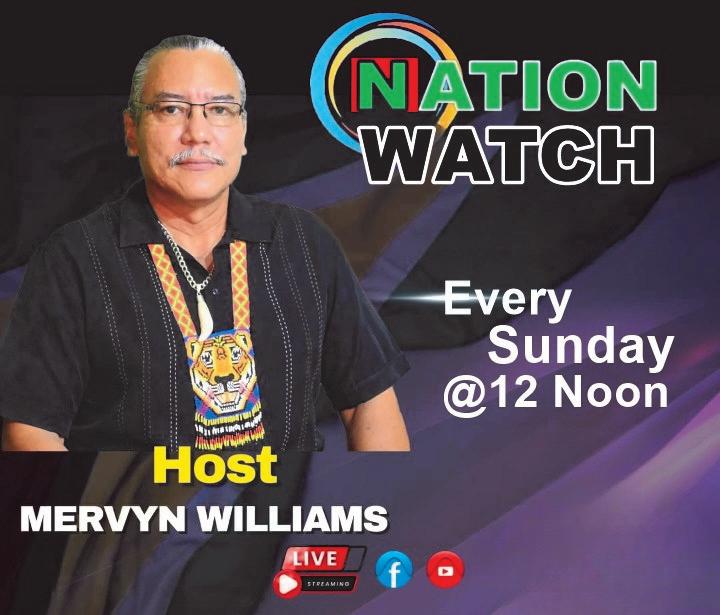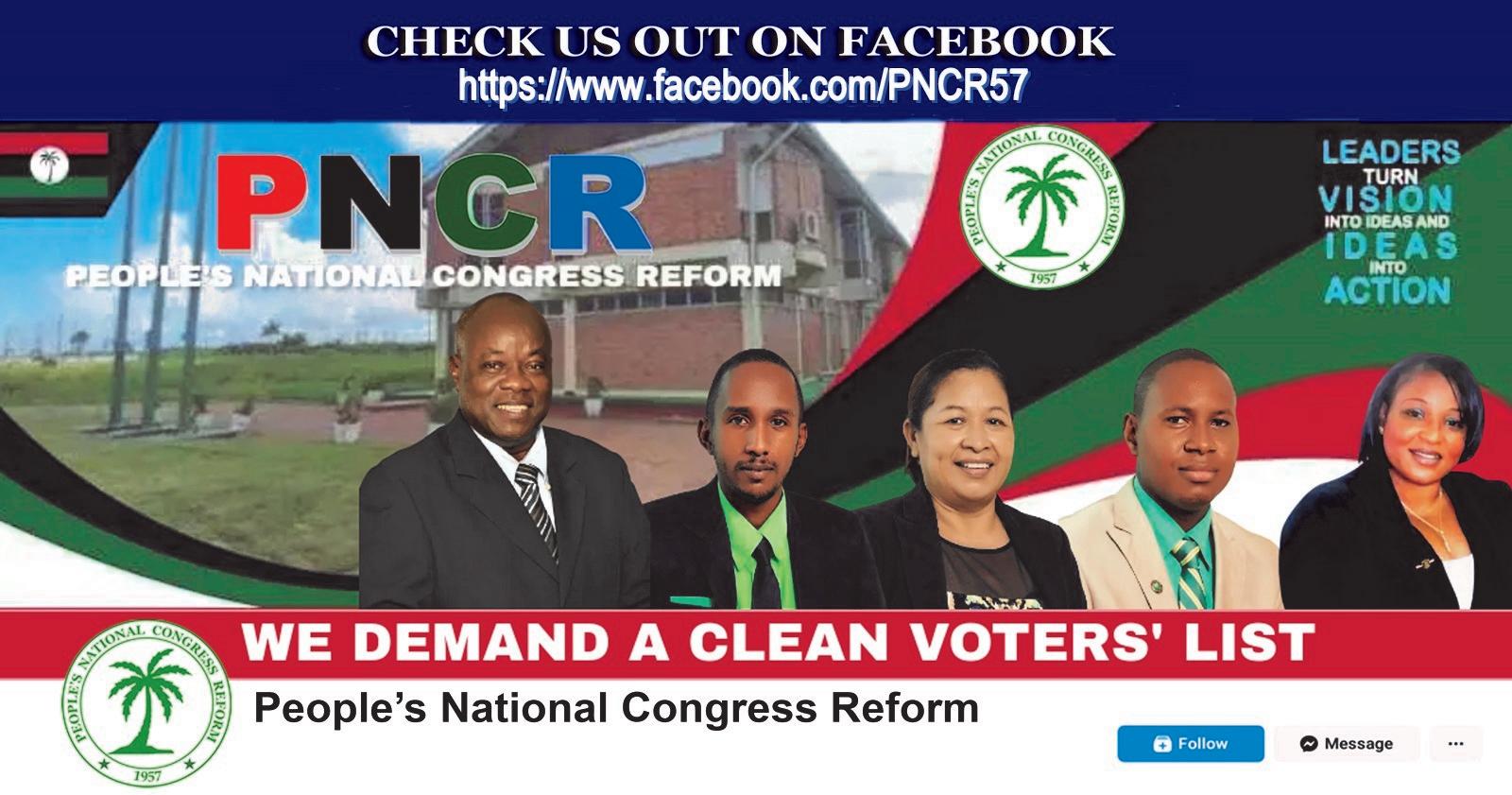










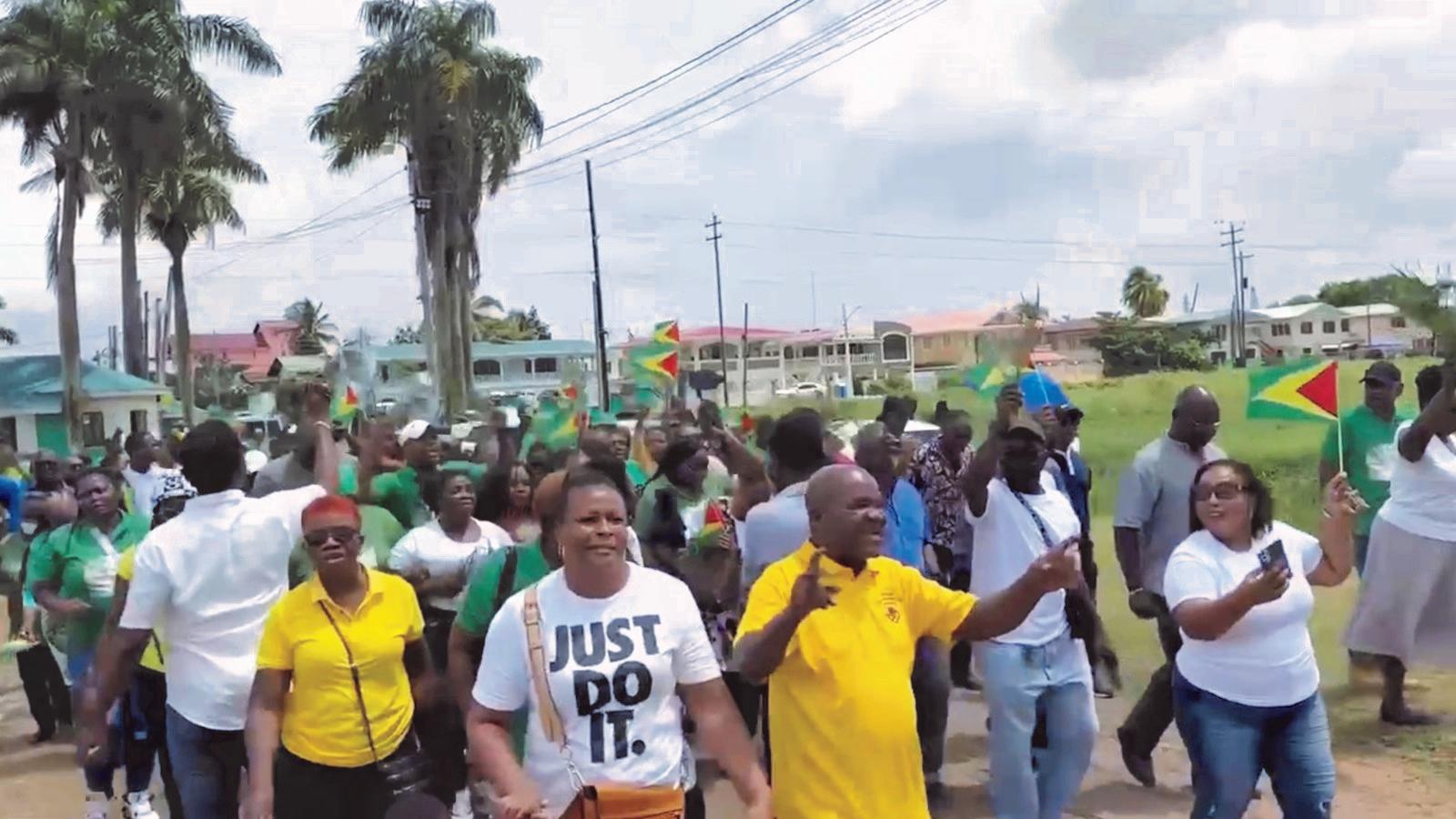
On Monday 10th June 2024, the People's National Congress Reform (PNCR), as part of its Biennial Party election, held a successful and problem -free Nomination Day. Nomination Day is part of the election process to elect a new Party executive including Party Leader, Chairman, two (2) Vice Chairpersons, Treasurer and the fifteen (15) Central Executive Committee members. Without being nominated, a member is ineligible to be elected at the election to be held during the Biennial Delegates Congress from June 28th to 30th. All ten (10) Party regions submitted nominations. The preliminary results put the Party Leader, Aubrey C. Norton at over 80% of the nominations.
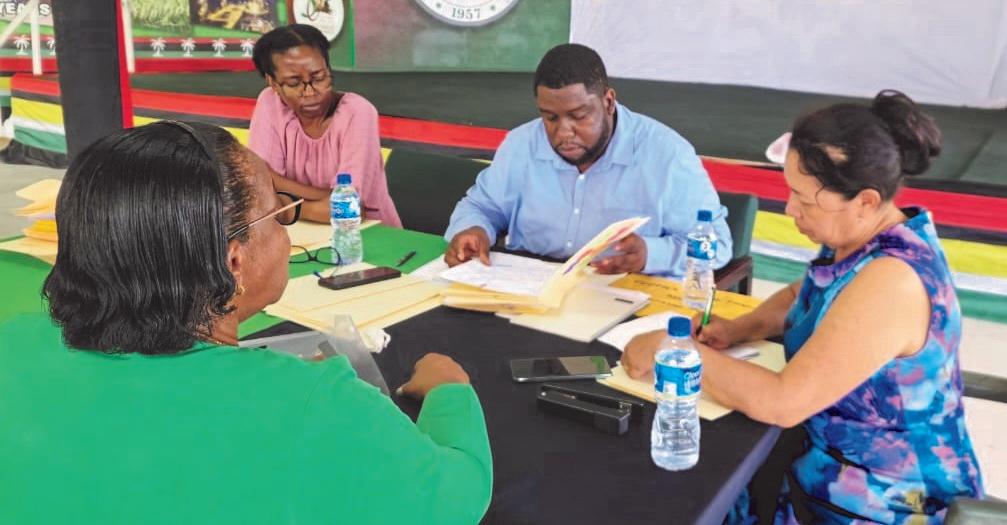

LEST WE FORGET: Between 2015 and 2019, the APNU+AFC government built or rehabilitated over twenty-five (25) pump stations in the coastal Regions of #2, 3, 4, 5, and 6 as part of a comprehensive flood management project. The areas benefiting from this investment include: REGION 2: Three Friends, Columbia, Aberdeen, Land of Plenty, Mainstay, Lima, Reliance, Hampton Court, Trafalgar. REGION 3: Windsor Forest, Den Amstel. REGION 4: Lusignan, BV/Triumph, Good Hope and its environs, Friendship, Vigilance, Buxton, Nootenzuil Herstelling/Mocha/Providence, Hope and Enmore. REGION 5: Trafalgar. REGION 6: Rosehall, Bengal, Gangaram, Eversham and Joppa. In addition, three mobile pumps were purchased for Georgetown, along with the country’s first-ever Cutter Suction Dredge (to clear outfalls) and Amphibious Excavator (to dredge the conservancies). Total investment (without oil wealth) over the four years topped approximately $G7B. Under the PPP, these projects would have amounted to three times as much due to corruption, shoddy work, and incompetence.
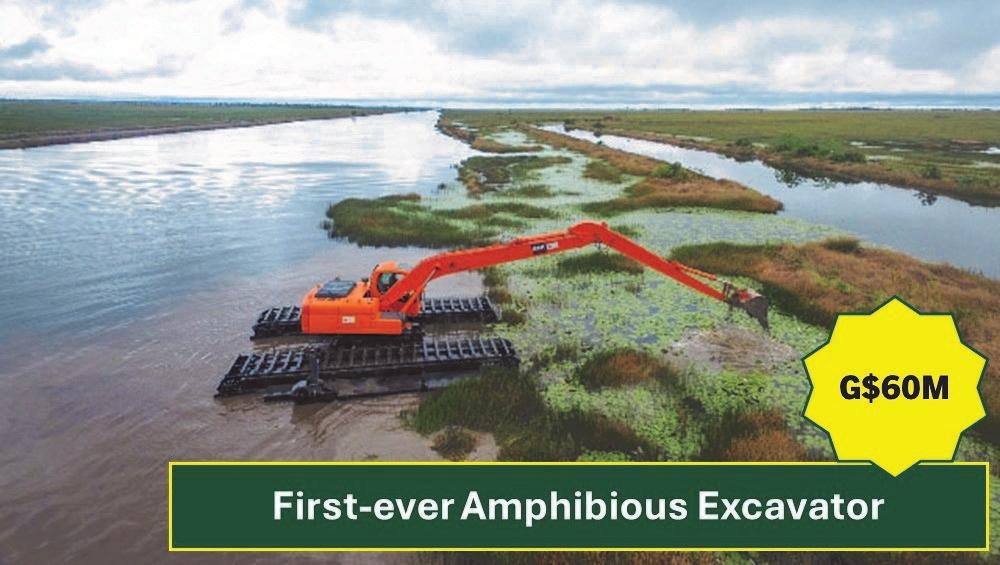
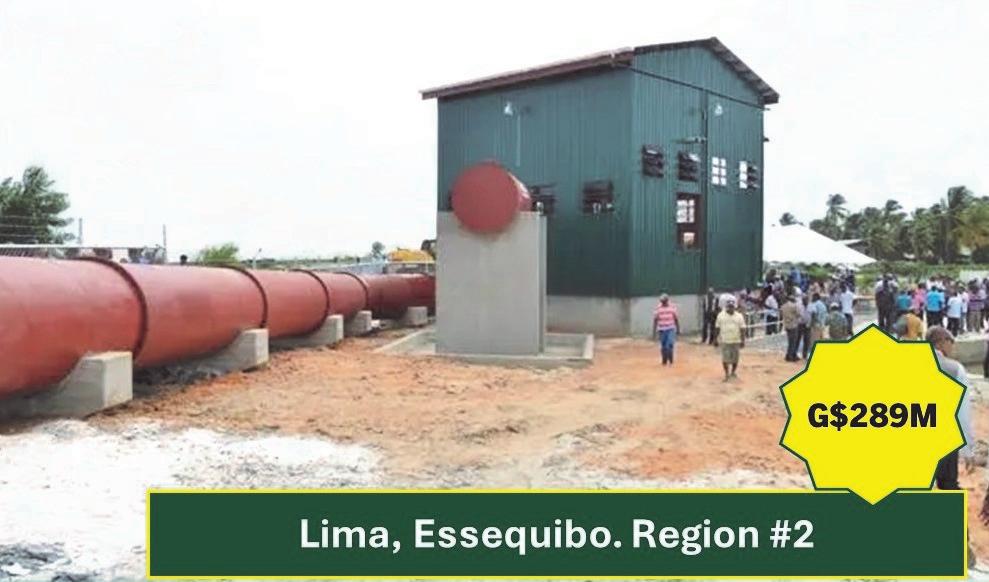



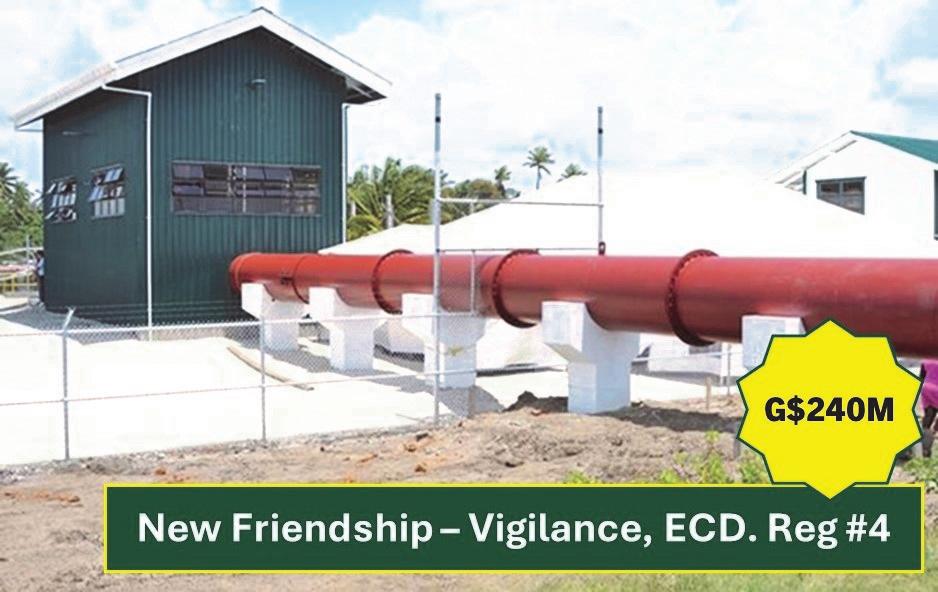

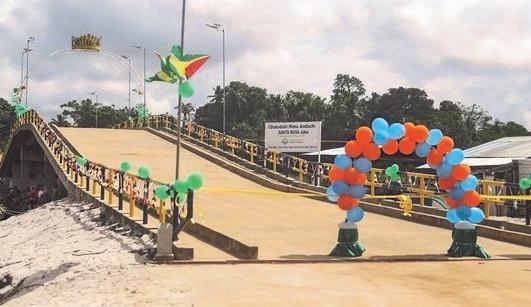
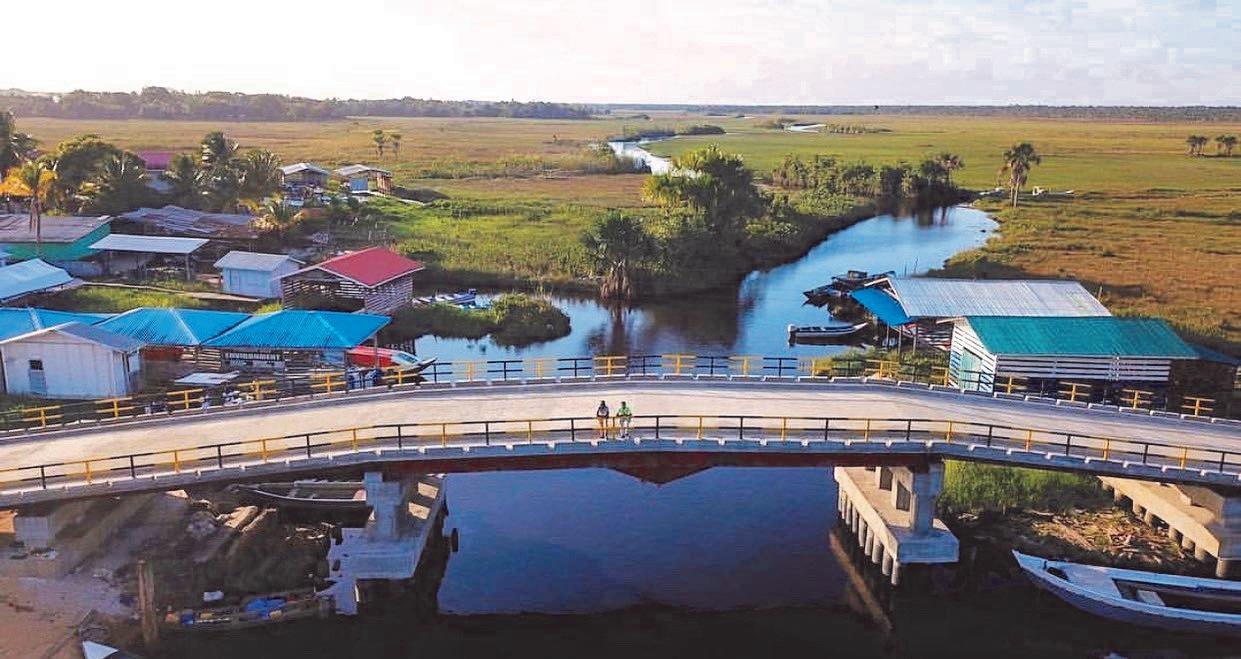

On Friday 21st June 2024, the Hugh Desmond Hoyte Committee hosted the 9th Commemorative Lecture in honour of the 95th birth anniversary of the late Leader of the People’s National Congress Reform, Hugh Desmond Hoyte, SC, which was observed on the 9th March.
This event was held at The Exhibition Center of the Pegasus Hotel. The Lecture was delivered by the Leader of the People’s National Congress Reform and the Leader of the Opposition, Mr. Aubrey C. Norton, MP. The topic of the lecture
was "Hoyte, the Statesman – Restoring the Economy and Promoting Development."
Previous lectures have been delivered by Dr. Tyrone Ferguson, late Head of the Presidential Secretariat; Sir James Mitchell, former Prime Minister of St. Vincent & the Grenadines; Mr. Carl Greenidge, former Minister of Finance; Mr. Stanley Ming, one of the Founders of the Reform component of the Party and a reputable businessman; Major General (ret'd) Joseph Singh; Mrs. Supriya Singh-Bodden, CCH, a former member of the Par-

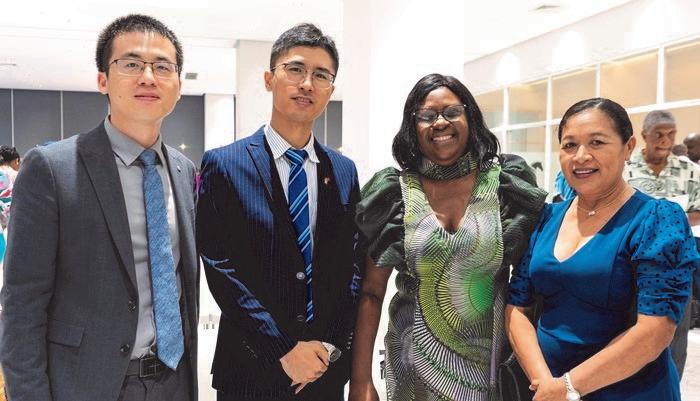
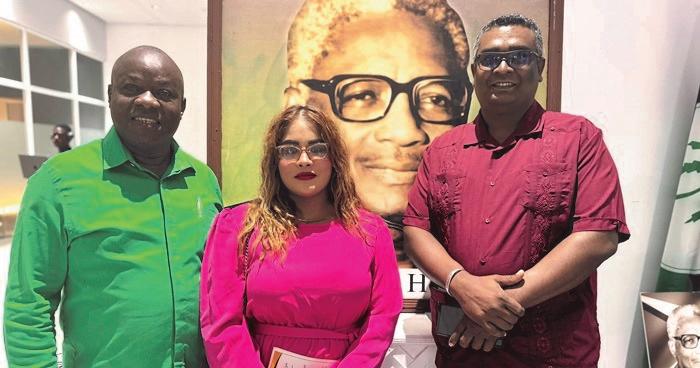
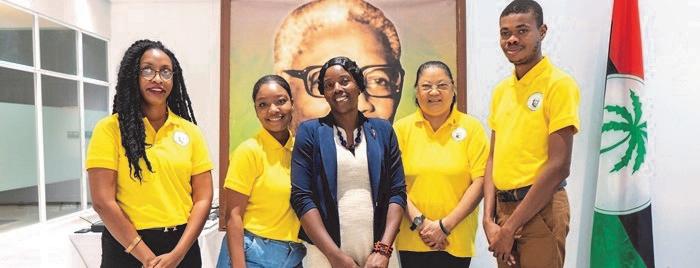
ty’s Central Executive Committee, and one of the Founders of the Reform component of the Party; and Mrs. Volda Lawrence, MP, National Chairperson of the National Congress of Women (NCW).
These lectures in various ways captured the personality, vision, philosophy and successful national and foreign policy projects of Mr. Hoyte when he was President. Major General (ret'd) Joseph Singh, for example, in the 5th Commemorative Lecture, referred to Mr. Hoyte's strategic vision in initiating the Iwokramaproject.
Mr. Desmond Hoyte was the second Executive President of the Cooperative Republic of Guyana. He is widely credited for restoring growth in the economy by implementing an Economic Recovery Programme (ERP) whose essential elements are still manifest in the existing economic policies. Both the World Bank Report and the Inter-American Development Bank (IADB) of 1990 referred to the positive impact of the ERP on the economy which was growing atapproximately7%.

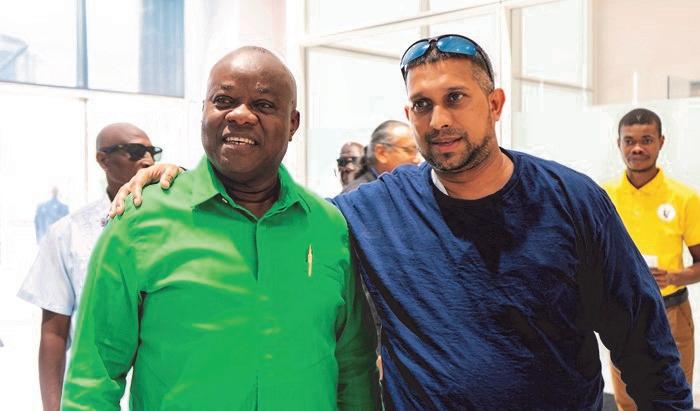

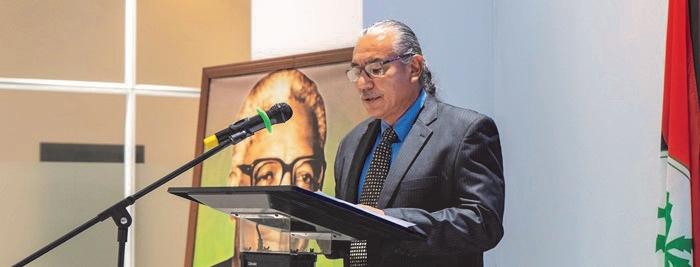

By Aubrey C. Norton, MP Leader of the PNCR and Leader of the Opposition
Thank you, Mr. Chairman, for those kind words of introduction.
Members of the Central Executive Committee, Members of Parliament, Members of the Diplomatic Corps, Distinguished Guests and Special Invitees, Elders of our great Party, Delegates and Observers from Guyana and our Party Groups in the Diaspora, Members All.
I join the Chairman in extending a sincere welcome to all of you to this, the 22nd Biennial Delegates Congress of the People’s National Congress Reform.
Our Party was founded in 1955 after a split in the PPP, resulting in the emergence of the PPP Burnhamite and the PPP Jaganite factions. In 1957, our Party adopted the name People’s National Congress (PNC). In 2001, the name was changed to the People’s National Congress Reform (PNCR).
This Congress falls in the 69th year of our Party’s existence. Our continuous existence is a testimony to the unremitting resilience of our Party, its vibrancy, strength, vision, and commitment to the people of Guyana. Not only have we successfully survived and endured, but we also continue to grow in popularity as a political force for national change and development. None of this would have been possible without the vision, inspiration, and leadership of our Founder Leader, Linden Forbes Sampson Burnham. Nor could we have gotten here without the toil, dedication, and zeal of our past and present members, activists, and supporters across the country and in the Diaspora.
It is useful to note that our Party, while changing strategy and tactics over the years, has always been, and continues to be, committed to three major objectives:
1) the ridding of the Guyanese society of injustice;
2) developing and building a strong and sustainable economy; and,
3) offering the people of Guyana a high quality of life.
These continue to be the core objectives and the raison d'être of the People’s National Congress Reform. We reaffirm our commitment to these noble objectives.
Let us applaud our struggles
Indeed, since the last Biennial Delegates Congress on the 18th of December 2021, we participated in the Local Government Elections in June 2023. Despite several challenges such as a political opponent with access to billions of dollars of oil revenue, intimidation of our members, activists and supporters, provable acts of electoral fraud by the PPP, and an unresponsive and misguided GECOM, we persevered in our strongholds and made inroads in new areas. Let us applaud therefore all those Party members, activists, supporters, and defenders who fought the good fight at the last LGE.

Let us also applaud our fellow Guyanese in the more than 200 Indigenous communities in all ten (10) Regions who, at the recent Indigenous village elections, voted to uphold their rights to self-determination and to free, prior, and informed consent, and in the process rejecting this government which is obsessed with domination and control. This is a harbinger of what is to come in the next General and Regional Elections.
With continued improved organisation, unity, discipline, and hard work, we, in collaboration with the people of Guyana, will remove the incompetent and corrupt PPP government from office.
We must also applaud our teachers and other public servants for their resolve and courage as they continue their struggle for due respect and a livable income.
Emergence of Totalitarian and Authoritarian
Guyana has arrived at its lowest low. Politically, the government continues to destroy our democratic institutions, and politicize the police, army, and the entire public service. It impoverishes the workers of this country by refusing them a livable wage while simultaneously destroying the trade unions that are there to represent them.
The foregoing, coupled with executive lawlessness, incompetence, high levels of corruption, and ethnic and political discrimination, is clearly hurtling Guyana down the road to becoming a totalitarian and authoritarian state
The actions of the government over the last four years have resulted in a national crisis in Guyana!
Mismanagement of the economy and rising poverty
Guyana’s government likes to paint our country and its rapidly growing economy in gold. Listening to the President and second Vice President, you would think that even the least fortunate child has a full belly, quality education, and shoes on his or her feet. I want to point you to several concrete examples of extreme poverty among children, to demonstrate that rather than soaring higher, our country’s
economy has begun to resemble the “jumbie bird” that the PPP aptly said was a metaphor for its growth and development.
Ladies and gentlemen, I know many of you must have come across this strange new phenomenon, this daytime nightmare, when traversing our roads and bridges. They are lined with children, sometimes in groups as large as twenty, begging!
This takes many forms, from those merely asking for food to those breaking bricks into potholes and begging for some small measure of compensation.
I ask you now to consider that Guyana is one of 63 countries classed by UNICEF as facing “severe child food poverty,” and to reflect that not so long ago the World Food Program noted 58% of Guyanese are moderately or severely food insecure! I pose to you one simple question: what is the point of being the world’s fastest growing economy for several years over, if our children are going to bed at night hungry? Fundamentally, this government’s priorities are totally wrong. This government has no idea whatsoever of how to deliver real development to Guyana. This government seems to believe that infrastructure development at the expense of human development is in itself development.
There can be no useful development without human development!
We often draw a comparison with Equatorial Guinea, an oil-rich country that has been plagued by corruption scandals, biting poverty, and severe childhood malnutrition. More than a quarter of the children in that country suffer from stunted growth, and child poverty has been described as extreme by the Borgen Project. Simultaneously, it notes that the vast majority of government revenues are spent on infrastructure. Guyana is trending in this direction. In 2023, the capital budget was $388 billion Guyana dollars and in 2024, it has climbed to a whopping $666 billion dollars.
We believe infrastructure is important to our country’s growth and development, but we simply cannot accept that any sane government would think that nearly doubling capital expenditure while children beg in multiple locations of the capital city is the right thing to do. There must be a balance between direct poverty alleviation measures and investment for the future.
Currently, adjusting for prices, Guyana has a per capita GDP of over $80,000 USD. Which government would starve its people, ignore the cost -of-living crisis, ignore the monstrous poverty figures we face, and plow right on ahead with excess allocation of resources to infrastructural development. Only the kleptocratic PPP will do that! We are living in a kleptocracy in which there is no care for the people of Guyana.
I began with a word on the goldencrusted picture that the PPP has attempted to paint, and I want to end on it, as local gold production has been a topic of serious concern lately. We have pointed out the vast difference between gold declarations under the
coalition and those under the PPP. Gold declarations moved from 641,828 ounces in 2019 to 432,113 ounces in 2023, a very similar number to what was observed the previous time the PPP was in office. What a coincidence! This has resulted in severe sanctions being applied, sanctions so severe that we did not hear from the government for an epoch. However, what we do know is that this is just the tip of the iceberg, and that the PPP has been so focused on corruption, so dedicated to mismanagement, that several sectors have underperformed compared to when the Coalition was in government. Sugar has slumped to unspeakable levels of underperformance, and it seems every few months a fresh crisis of underperformance raises its head.
In combination with gold, sugar has historically represented a major nonoil foreign exchange earner. Its severe decline mirrors gold’s, falling from 105,000 tons under the coalition to a low of 47,000 tons under the PPP. These are apocalyptic numbers. It is no small wonder then that Guyana has been experiencing a prolonged foreign exchange crisis, prompting businesses to repeatedly plead for relief. It is clear the APNU+AFC government did better than the PPP without money from our oil resources.
This does not sound like an economy that is solid gold. This sounds like an economy that is gold-plated, and poorly so at that. At the slightest brush, the plating wears off, and the rot below is exposed. That is how we would like to characterize this economy under the PPP, as rotting from within, even as the PPP smiles and pretends that everything is going perfectly. We remind Guyanese that the Minister with responsibility for Finance cannot even tell us what the unemployment rate is for the last few years, because the government has not carried out the requisite surveys and published this data. If they themselves don’t even know what the unemployment numbers are in Guyana, how can they claim to know anything about the true performance of the economy?
Mr. Chairman, if there is any consensus among most Guyanese, is that Guyana is in crisis. Our country needs to and must change to benefit all the people of Guyana! Guyana has now reached the tipping point.
People will no longer accept their continued poverty and pauperization amidst the existing oil wealth. People will no longer accept the normalization of high and rising costs of living. People now reject the glaring unfairness in the distribution of income, wealth, and opportunity. People no longer accept the PPP’s crony capitalism in which there is little or no competition, just government control and domination. The country’s oil wealth eludes and bypasses the average Guyanese. People are rejecting the ineptitude of the PPP who are seeking to determine how we live and survive while their elite, friends, families, and favorites plunder our newfound wealth.
(Continued on Page 6)

(Continued from Page 5)
The foregoing has resulted in Guyanese being disillusioned and clamoring for a change of government. Yes, people want an end to bad governance and bad-minded government. Guyana is ready for a change of government, and we are well prepared to be that new government.
These are dire times. It is in this context where wealth is eluding the people of Guyana that our Party has chosen the theme for this Congress to be: “Forming the next government: building a just, inclusive, and prosperous society for all.” This theme mobilizes us on a clear, urgent, and comprehensive mission, the success of which will transform Guyana into one of the best countries to live in with its people enjoying one of the highest living standards and quality of life.
We, in the PNCR, are well-suited for this mission. Since our Party’s founding over six decades ago, PEOPLE have always been first and at the centre of our purpose and vision. We today remain committed to our core principles, which we are widening and advocating in our People-Centered Development Strategy (PCDS).
We have defined our People-Centered Development Strategy in the National Assembly. We stated then that “… it puts people first and will utilize the resources of Guyana to achieve the ultimate goal of providing a high quality of life to the people of Guyana through the direct and indirect transfer of resources to our people, to educate them, support their mobilization of resources to work, and for investment with the aim of alleviating and ultimately eradicating poverty while simultaneously resulting in the sustainable development of all communities and sectors of the Guyanese society, as well as the promotion of good governance and the creation of a just and prosperous society. The PCDS will ensure that the needs of the people such as healthcare, housing, water, electricity, education, transportation, and other social services are guaranteed.”
This definition encapsulates exactly what our theme spells out. We will be the next government in Guyana. We will work assiduously to build “a just, inclusive, and prosperous society for all” in which the Private Sector plays a critical role in the development of the Guyanese society.
It is unacceptable for the present crisis to exist while we have oil wealth. We will manage the oil sector efficiently and effectively. We will put mechanisms in place to ensure that Guyana continuously increases the benefits from oil and gas and that these resources be used to ensure the development of Guyana, especially, our human resources.
As we seek to build a just, inclusive, and prosperous society, we must continue to work assiduously to increase the support of the people. Our contract is a new deal for the people of Guyana. The PNCR will seek to obtain and maintain the trust of the people to gov-
ern. We see our commitments, our pledges, and our responses to the Guyanese people as a CONTRACT WITH THE PEOPLE OF GUYANA. In that contract, our signature will bind us to deliver on our People-Centered Development Strategy, which will involve inter alia, the following:
A livable income. We will guarantee the people of Guyana a livable income. In terms of living standards, we are going to raise those at the bottom up and expand the numbers of those in the middle class. Guyanese households and families will see meaningful changes on their dining tables, in their food cupboards, purses, wallets, and bank accounts. This will be complemented with a significant cash grant to households that are predictable and accounted for.
Pathways to Prosperity. We will develop several pathways to prosperity. We will ensure personal and household prosperity through employment, selfemployment, business investment, entrepreneurship, creativity, and innovation. Our pathways will provide the “ladders” for Guyanese to pursue further economic selfempowerment.
Building a caring society.Our main aim in the social sector is to build a caring society with a comprehensive social protection system. This system will be based on:
a) our moral obligation as a government to the people,
b) our respect for the human rights of citizens to a high quality of life, and c) as an investment in improving human resources for national economic growth and development. We will be a caring government. We will create a caring society. The well-being of every Guyanese will be at the centre of our agenda. We have already spoken publicly about such policies and measures as a comprehensive early childcare and education system with monthly child allowances and longer maternity leave, a national transportation network to take children to school, a school nutrition programme that includes two hot meals; a genuinely free university with student stipends; free or cheap water and electricity for lower-income households; rent assistance and rent-to-own housing schemes; and higher salaries and pensions, among other measures. We intend to raise the pension of workers who have long retired and are earning a pittance by today’s cost of living levels. We will raise their pension so that they have the means to survive in the present difficult economic situation.
The PPP’s Vice President often snidely remarks that such programmes amount to the people “just eating out the budget.” However, we in the PNCR see it as investing in the people’s well-
being and in the country’s human resources. Those who do not know what it is to go hungry will make the kind of statements that emanate from the PPP. We cannot accept that in our oil State, hundreds of people are hungry and homeless.
An opportunity society. The PNCR is committed to building an opportunity society – where each Guyanese could aspire to be, and become the best person he or she could. Our aim is to facilitate equal opportunities and equity for all Guyanese.
An inclusive and participatory democracy. Not only will the PNCR pursue the politics of inclusion, but we will also expand the scope for participatory democracy. By this, we mean that not only will the representatives of citizens participate in decision-making, but the citizens themselves directly.
In this regard, we are committed to ending political interference in local democratic organs. The PNCR will advocate for local democratic organs to be autonomous and be given their subvention based on objective criteria.
A secure and safe society.We will improve the security in the society so that people can live safely. We will increase training for the Guyana Police Force for it to become a professional, discipline services organisation so that it can solve crimes and take measures to ensure that the people of Guyana have confidence in our law enforcement agencies. We have to root out corruption from the Guyana Police Force while increasing its competence levels. Guyanese deserve to live in a safe and secure society. We did it in government between 2015 and 2020 and we will do it again.
Development of the Youth. The PNCR will place youth development high on its agenda and revisit our national youth policy with the aim of adapting it to the present situation.
We believe that youths are not a problem; they are resources to develop. In this regard, there will be a significant focus on training and educating young people while opening opportunities for them to have employment and be involved in business. We intend, in government, to execute our 50/50 youth programme, in which we will give 50,000 youths $50,000 a month while training them to improve their skills and to make themselves marketable!
Development of Women. Our Party is indeed grateful for the significant contribution of our women to the Party and the development of Guyana. We applaud our women. They continue to be the backbone of our society, and like the youth, we will afford them similar opportunities, including the development of a network of early childhood development centres that will help them to nurture our children to maturity with the relevant core values.
Shared values and destiny. As a Party and with the wider society we will pursue increasingly higher levels of shared values, shared understandings, shared prosperity, and shared destiny. We need to develop a new national ethic. A new work ethic, discipline and caring for others.
We are the Party committed to inclusive prosperity. The PNCR will never accept that Guyana, as one of the richest countries in the world, is increasingly plagued by food and income poverty, gaping inequality, and widespread economic desperation and hopelessness. It is a national disgrace that amid plenty, Guyanese and their families are becoming more pauperized, traumatized, and demoralized. It is for this reason the Party has to be organized to be in government.
We will replace national disgrace with national pride. We will give real meaning to Article 40(1) of Guyana’s constitution, which declares that: “every person in Guyana is entitled to the basic right to a happy, creative, and productive life, free from hunger, ignorance, and want.”
Our economic planning in government will follow a simple roadmap, it will maximize the revenues the country earns from our vast oil resources; reduce financial waste, inefficiencies, and corruption in government spending; expand the non-oil economy; remove the impediments of doing business in Guyana; and ensure good money gets directly and indirectly into the hands of the people.
In the realm of human development, the PNCR recognizes that the overriding priority is to ensure the economic development of Guyana. We are well aware that this can only be achieved through the work and effort of all the people of Guyana. In this regard, we will promote social cohesion which is central to our People-Centered Development Strategy. Also key to our PCDS is the personal and human development of all Guyanese and the creation of a society in which their legitimate aspirations can be fulfilled. We will therefore develop the skills and capabilities of all the people of Guyana so that they, in turn, can develop the natural and other resources of Guyana
A logical sequel of the foregoing is that the country’s Natural Resource Fund must become a Shared Prosperity Fund for current and future generations. We will end the approach of the present government of plundering the Natural Resource Fund for the enrichment of their elite, families, friends, and favorites.
Social Cohesion and Ethnic harmony
As a Party committed to social cohesion and ethnic harmony, our next government will walk the talk o n social cohesion and ethnic harmony by developing clear policies and programmes (Continued on Page 7)

(Continued from Page 6)
that will result in social cohesion. We will craft and implement a National Action Plan to transform race relations. For us in the PNCR, harmonious ethnic relations in Guyana must pass three tests at both the objective and subjective levels:
Test #1: Structural hindrances to fair treatment and equal opportunity must be eradicated in all spheres of public life. We will make concrete changes to our legislation, administrative policies, institutions, systems, and practices.
Test #2: All citizens must feel that their ethnic identity, culture, wellbeing, and aspirations are respected by the state. They must feel that their identities do not disadvantage them in becoming their best selves and participating to their fullest potential in their community and society.
Test #3: Citizens of different ethnicities must respectfully engage and cooperate with one another.
As a Party committed to good governance, we will continue to work to ensure that good governance becomes part of our political culture. We must never lose sight of the fact that we are here to serve the people within a social contract. It is for this reason that we have been in communities across the country, listening to and working with the people of Guyana so that we know their needs, understand their aspirations, and can govern in their interest. To honor that social contract, we must account and report to the people; we must consult with and listen to them; we must be reasonable, responsible, and responsive; we will respect their collective interests and will; and we will ensure their general and individual wellbeing and prosperity.
Our Parliament must build real capacity to deliberate and scrutinize and to make laws for the common good. Legislation that addresses rights and freedoms must have teeth. Constitutional commissions must be invigorated to fulfill their extensive mandates. Local government must win the confidence and support of the people. We will allow local government bodies the opportunity to work with and serve the people, rather than the present domination and control practiced by the current government. While we support the current constitutional reform process, we recognize that there is much in the current constitution that already authorizes profound changes. Unfortunately, the present government and its political culture do not allow for the realization of its real potential.
We are the Party for social justice and equality. In our vision, building a just society goes beyond economics. Our vision also includes expanding and upholding women’s rights and dignity, and the rights of and the respect for our Indigenous people. In relation to the Indigenous communities, we will work assiduously to make them selfsufficient and self-sustainable and ensure they have the right to elect their
own leaders without government interference. Apart from these approaches to Indigenous issues, we will pursue a comprehensive plan for hinterland development with the aim of closing the gap between the hinterland and the coastland.
In the New Guyana we envisage, no Guyanese must be disadvantaged because of ethnicity, gender, creed, social status, religion, or disability. We will not only protect these rights but also promote and enhance them.
We are the Party always standing on the frontline in defense of our territorial integrity and national interests. Our country faces its highest level of threat to its territorial integrity, national security, and sovereignty. The stakes could not be higher. Our borders are at stake; our national selfdetermination is at stake; the control and command of our destiny are at stake; our collective peace of mind is at stake.
More now than ever, Guyana needs a Party and a government that can confront and overcome these existential challenges with a commitment rooted in a profound sense of patriotism and nationhood. Guyana needs a government that is uncompromising and relentless in its focus on these issues. We believe that we will be that government.
To achieve the above, we need an environment that is conducive to and supportive of our national development thrust and the protection of our territorial integrity.
We need to work towards reforming the present political and economic systems that provide the framework for managing the relations between states. This is the emergent consensus of a wide cross-section of experts, politicians, statesmen, diplomats, and citizens across the globe. Crisis is the word often used. Geopolitical tensions are evident. Rivalries between and among existing and rising powers are the order of the day. The issues related to the environment are urgent.
The imperatives of the problems spawned by climate change can no longer be ignored. As an oil producing country we are cognizant of the challenges to the environment. In this regard, we believe that there is need for us to have environmental space to pursue our development while at the same time ensuring environmental conservation. As a low-lying coastal state, it is imperative that we shift our development initiatives to the high lands.
The global economy is showing signs of instability. Of pressing concern to the citizens of Guyana is the resurgence of the assault on the territorial integrity and sovereignty of small states in Europe and Asia, which can be a template for some misguided political scofflaw of our region.
My own experience in foreign affairs and the analysis of analysts tells me that in the circumstances described, a small nation like Guyana, even with the resources from oil at its disposal,
must have a coordinated and coherent national and foreign policy in order to survive and prosper. Such a foreign policy is an extension of our national policy and must be formulated based on the success and experience gained as a nation and the careful consideration of new factors ignited by globalization. Unfortunately, the current administration, after four years, is nowhere near articulating what exactly is the foreign policy of this nation and on what it is based.
At this Congress, we will discuss and scrutinize our foreign policy and offer the people of Guyana areas for improvement and the strengthening of the foreign ministry. But here I want to focus on two areas where the lack of a well-thought-out foreign policy threatens the prosperity and existence of this nation. We have always regarded the Caribbean Community as our first line of defense. Can we in all good conscience say this is true today?
In the judgment of my Party, some CARICOM States seem to have relations that are closer to Latin American states than with the rest of the region. In fact, we have seen on several occasions that leaders of the community would take a position on our territorial controversy that does not align with our own. I believe that this unfortunate situation has come about because we do not have, as I have said before, a coherent foreign policy which could facilitate a needed outreach to the States of the Caribbean Community and even further afield to Latin America. We need to begin a new dialogue with our brothers and sisters of CARICOM to get them to understand that the aggression of Venezuela has now become so serious that it poses an existential threat to the territorial integrity and sovereignty of Guyana.
We in the People’s National Congress cannot understand why the PPP administration is making no effort to leverage its position as a Petro State to improve and expand relations with the States of the Caribbean Community. The PPP, for example, can offer the Caribbean Community States oil at reasonable prices or create a mechanism such as a CARICOM Multi-lateral Clearing Facility (CMCF) which allows States of the community to get needed oil and petroleum products. What is alarming to us is that our brothers and sisters in the community do not seem to understand the geopolitical ambitions of our western neighbor. Venezuela needs an outlet to the Atlantic so that it can continue its domination of the Eastern Caribbean States. Caracas has already succeeded in taking over Bird Island or Alves Island, and it has used programmes such as Petro Caribe to gain leverage over the Eastern Caribbean States. What is alarming in this context is that some of the Eastern Caribbean States seem prepared to accept Venezuelan dominance or lordship. It does not make for easy reading what the Prime Minister of St. Vincent and the Grenadines said in April of 2007. He is reported as saying that the “Organizations of Eastern Caribbean States (OECS) had accepted Venezuela’s sovereignty over Bird Island and that he would not allow any-
one to dictate whether or not he should put pressure on the Government of Venezuela in relation to the issue.”
We cannot understand why the government cannot craft the required foreign policy initiatives to counter Venezuela’s diplomatic clout in the Eastern Caribbean. It is our fervent hope that the government will make every effort to reclaim the position we had with the Caribbean Community, which is important to us both diplomatically and geopolitically. Let me end this section of my speech with a warning. At the CARICOM Summit in 1982, the then President of Guyana pointed out that any diminution of the States of the Caribbean represents the diminution of the territory of the Caribbean Community as a whole. Mr. Forbes Burnham said that if Venezuela succeeds in its greedy ambition, Guyana “stands to lose the whole of its territory and CARICOM runs the risk of being deprived of 67% of its geographical territory…”
The second matter which I wish to raise with you today is the ongoing aggressive claim to the Essequibo by Venezuela. In the past, it was possible for Guyana to engage with the Government of Venezuela without having to cope with the assertion of extreme positions. This has changed. Now the Maduro administration not only illegally claims the entire Essequibo region but also continues to use its military might to intimidate and threaten our nation. This situation has placed Guyana in a precarious position, requiring us to be vigilant and strategic in our response. We must develop a robust and cohesive foreign policy to address this issue effectively. Our approach must involve diplomatic engagement, legal action, and strengthening international alliances to ensure that our territorial integrity is preserved. We must also work to build national unity and resilience, making it clear to our citizens and the world that we are prepared to defend our land and our sovereignty at all costs.
Essequibo belongs to Guyana!
It is essential that we leverage our position as an oil-producing nation to build stronger ties with our neighbors and international allies. We should seek to create mutually beneficial agreements that not only enhance our economic prospects but also solidify our geopolitical standing. We must communicate clearly and consistently with the international community about the legitimacy of our territorial claims and the unjust nature of Venezuela's aggression.
Moreover, we must invest in our defense capabilities to ensure that we are prepared to protect our borders. This includes improved military training, modernizing our military, enhancing our surveillance and intelligence capabilities, and fostering a sense of national pride and readiness among our people. We must make it clear to Venezuela and the world that we will not tolerate any attempts to undermine our sovereignty!
Our Party is committed to addressing these challenges head-on. We believe that with a clear and coherent foreign (Continued on Page 8)

(Continued from Page 7) policy, strategic diplomatic engagement, and a united and resilient nation, we can overcome these threats to our territorial integrity and national interests. We call on all Guyanese to stand with us in this effort, as we work to secure a prosperous and secure future for our beloved country.
The other matter I wish to raise with you today is the ongoing aggressive claim to the Essequibo by Venezuela. In the past, it was possible for Guyana to engage with the Government of Venezuela without having to cope with the assertion of extreme positions. This has changed. Now the Maduro administration not only lays claim to our territory but has also created what is called the “Guayana Esequiba” as an entity with a central military command and rights under the Venezuelan constitution, such as citizenship and the right to sit in Venezuelan parliamentary institutions. This is dangerous and must be condemned by the international community in its entirety. There is also a need for the government of Guyana to formulate strategies to surmount the problems that this dangerous situation poses.
While the government has taken some measures to counter Venezuela’s aggression, our Party believes there should be a more robust diplomatic outreach to identify states in the international community, especially the states in Latin America. We have to push Venezuela back from its ongoing aggression and its efforts to concretize such aggression through a programme of strong diplomacy. I wish to emphasize that we must have a foreign policy that caters to such needs. As it stands, the government seems to react to every aggressive act by Venezuela in the narrowest of senses, and as a consequence, does not seem to cater to the geopolitical implications of Venezuela’s territorial greed.
To realize the above-stated programmes, there is a need for a strong, focused, and organized Party to bring them to fruition. We need and must become the next government.
A strong, focused and organised Party
To become the next government, we will work tirelessly to obtain the sup-
port of the people of Guyana. Our Party must increase its readiness, appeal, credibility, capability, and electability. This Congress, therefore, will be used to re-energize, regroup, and refocus our Party and its membership to urgently achieve these goals. We all have to sing from the same page in explaining our Party’s philosophy and our people-centered development strategy. We have to optimize the use of the skills and capacities of our members and supporters. We have to make our case in all communities across the land. We have to persuade Guyanese that our oil wealth under our new government will guarantee them a decent standard of living and a high quality of life. We will demonstrate to Guyanese that the PNCR feels their pain and is willing to listen. As we move forward, we have to be our best selves.
Of critical importance, we must meet the people wherever they are. No one must claim they did not see us or hear from us. Let this Congress galvanize us on a collective mission.
But to do this, we have to be a disciplined Party in which we stay on message and keep the Party’s business in the Party. We must recognize that every time we put our business out there, we strengthen our opponents at the expense of victory in the next General and Regional Elections.
Our task at this stage is to be organized and active in every community. We must be the image of the Party on the ground – an image that redounds to our benefit. We envisage a Party in which there is self-discipline, meaning that our members do what has to be done on time, effectively and efficiently without anyone having to tell them what to do. We must be guided by the Party’s policies so that we can be a unified force working to return good governance to Guyana.
I have no doubt that as a Party we are up to the challenge. We will continue to fight for biometrics and a clean voters list which no doubt will guarantee us victory at the next General and Regional Elections. Victory is on the horizon! Let us work to realise this victory for the people of Guyana.
Long Live the People’s National Congress Reform!
Long Live the People of Guyana! Ω
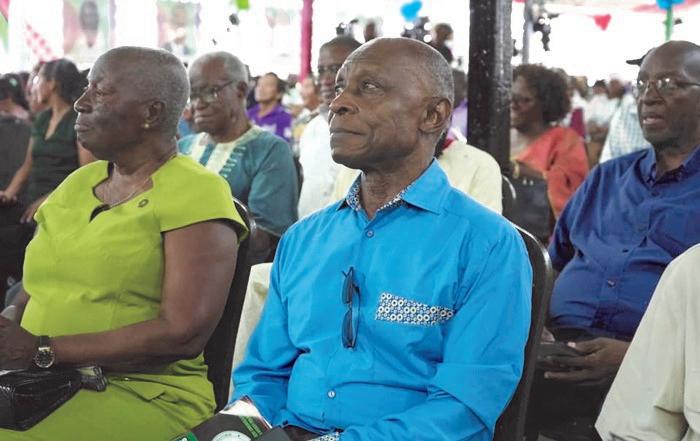
of the 22nd Biennial
The 3-day 22nd Biennial Delegates Congress of the People’s National Congress Reform (PNCR) concluded on Sunday, 30th June 2024. Approximately 1,300 Delegates representing 218 groups were accredited. Delegates came from all ten administrative regions of Guyana as well as from the North American and the United Kingdom region to deliberate on the serious issues affecting the Party and the nation. The theme for this Biennial Congress was: “Forming the next government: building a just, inclusive, and prosperous society for all.”
The opening ceremony was held on Friday 28th June 2024. Chairman of the Party, Shurwayne Holder, MP, gave the welcome and opening remarks. The highlight of the opening day was the Congress Address by the Leader of the PNCR, Aubrey C. Norton. In his presentation, Mr. Norton described his Party’s people’s centred vision as a CONTRACT WITH GUYANA that “puts people first and will utilize the resources of Guyana to achieve the ultimate goal of providing a high quality of life to the people of Guyana through the direct and indirect transfer of resources to our people, to educate them, support their mobilization of resources to work, and for investment with the aim of alleviating and ultimately eradicating poverty while simultaneously resulting in the sustainable development of all communities and sectors of the Guyanese society, as well as the promotion of good governance and the creation of a just and prosperous society.”
Party Leader Norton also touched on national security, foreign policy, and the necessity for biometrics and a clean voters list at the next general election.
Day two of the Congress was a working session. Several groups from across the country and overseas brought greetings to the Congress and Party Chairman Shurwayne Holder presented the General Secretary’s report.
The plenary session of the Congress examined the Chairman’s remarks, the Leader’s address and the General Secretary’s Report. Delegates vigorously
debated and discussed the various issues emanating from the three addresses.
The 22nd Biennial Delegates Congress examined several motions that were brought by local and overseas Party groups. Motions called on the Party to work towards establishing racial unity in Guyana, ensuring the implementation of its people-centred vision, providing transportation to support the Party’s work in the Hinterland regions, among other matters. The Congress also passed a motion decreeing that the elected Party Leader at the 22nd Biennial Delegates Congress be the Party’s Presidential Candidate for the next General and Regional elections (SEE ANNEX).
On the final day of Congress, Sunday 30th June 2024, elections for Party officers and members of the Central Executive Committee of the Party were conducted in accordance with the procedures set out by the independent Returning Officer Mr. Vincent Alexander.
For identification, delegates were required to display to the election officials both their delegates badge and a picture ID.
The turnout was overwhelming and attests to the vibrancy and strength of the Party and the commitment and loyalty of its membership.
Aubrey C. Norton was returned unopposed as Party Leader.
Shurwayne Holder was re-elected Chairman of the Party.
Vinceroy Jordan and Elizabeth Williams-Niles were re-elected Vice Chairpersons.
Elson Low was elected Treasurer of the Party.
Counting of votes for the election of the fifteen-member Central Executive Committee of the PNCR will continue this morning.
The Party extends its gratitude to all those who contributed to the success of its Congress. Ω
WHEREAS, General and Regional elections are due in Guyanaintheverynearfuture.
WHEREAS, at those elections, thepartyisconfidentofregaining nationalgovernment.
Whereas, the Party Leader has historically been the Party’s PresidentialCandidate.
WHEREAS on the single occasion when the Party Leader was not the Presidential Candidate (in the 2011 election), the then Party Leader made that de-
cision in his own deliberate judgement.
BE IT RESOLVED that the candidate elected as Party Leader at this the 22nd Biennial Delegates Congress shall be the party’s presidential candidate for the next General and Regional elections.
BE IT FURTHER RESOLVED that the elected Party Leader is solely empowered to decide, if he or she so chooses, on other possible choices or arrangements for PresidentialCandidate.

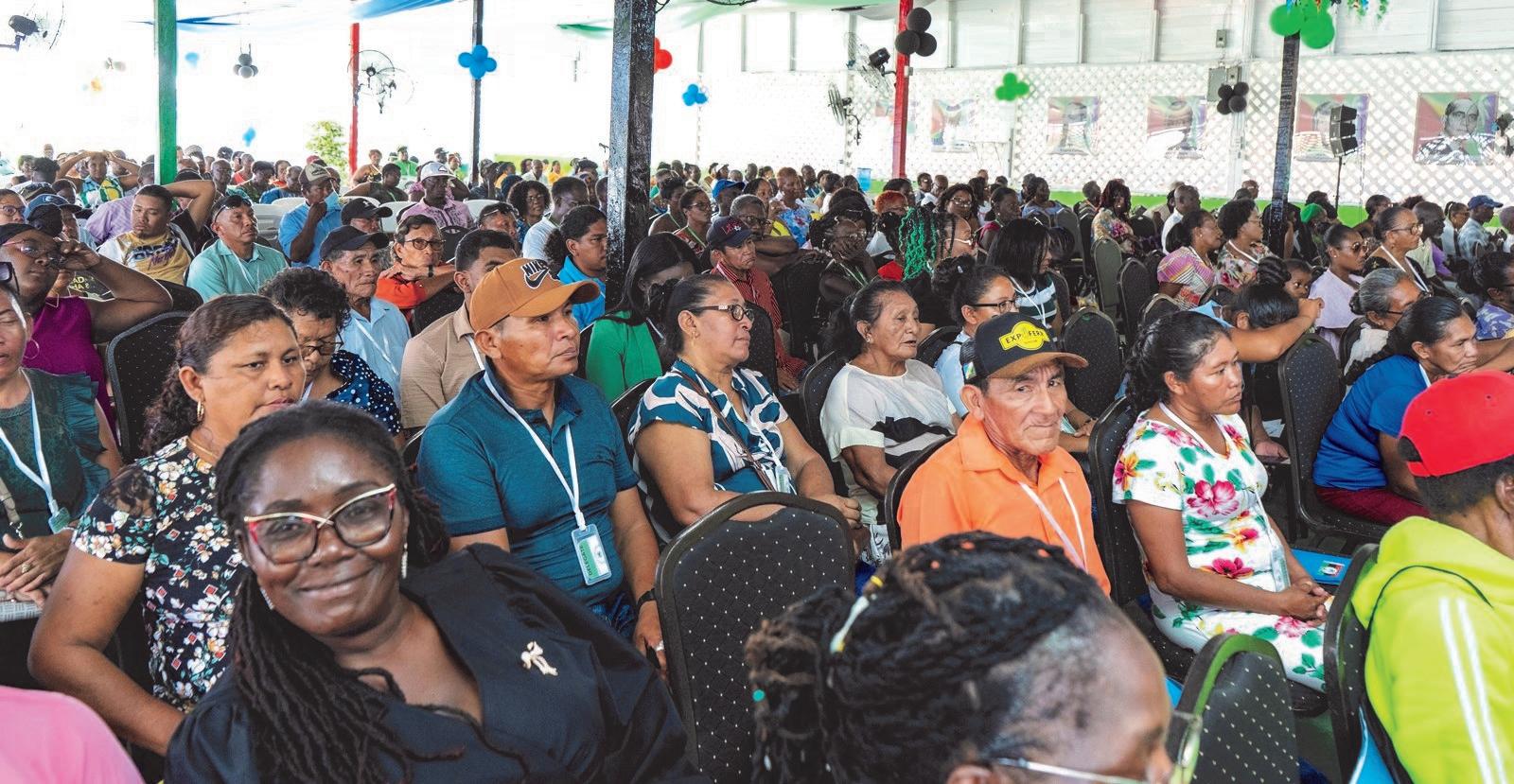
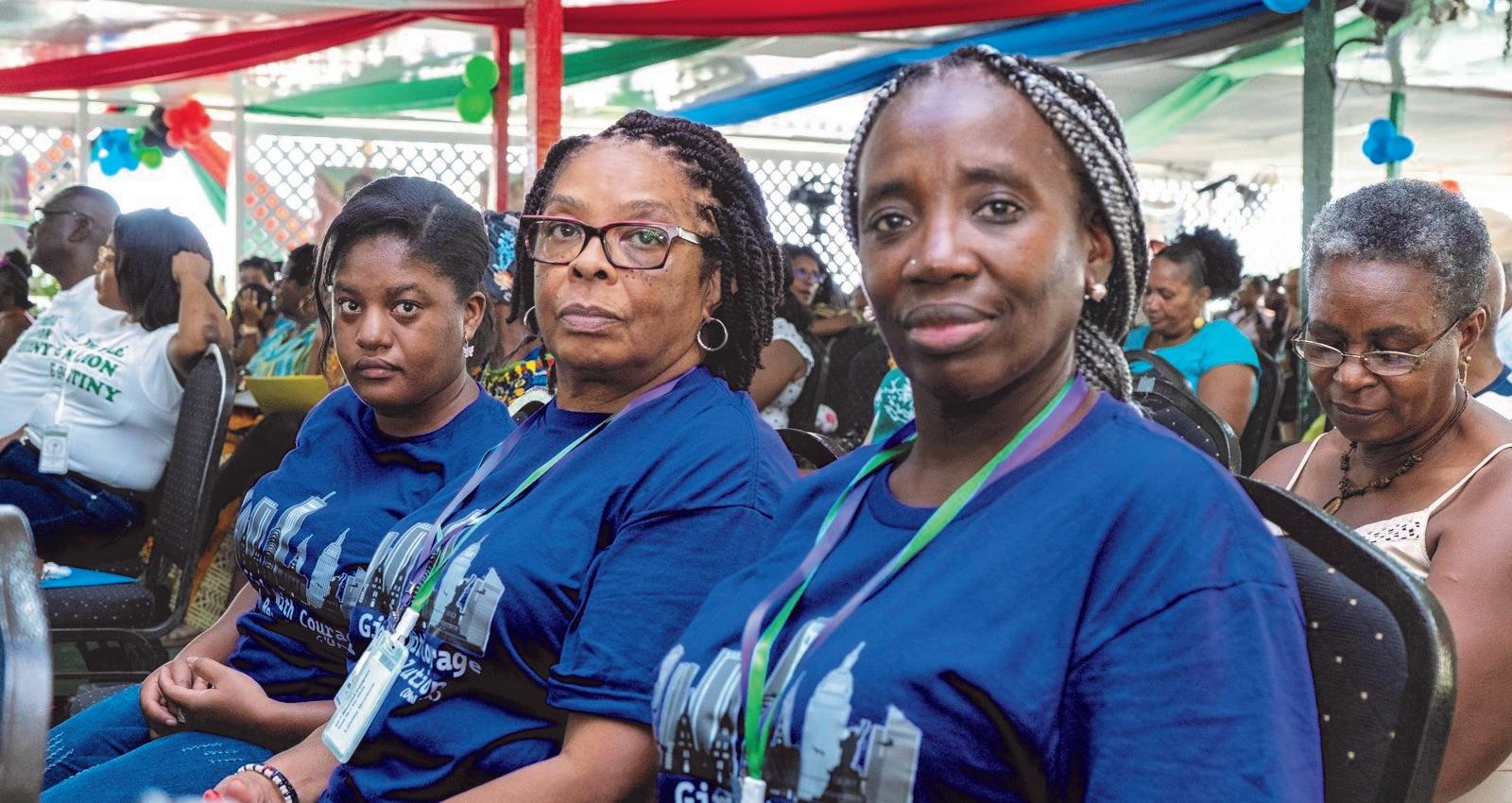
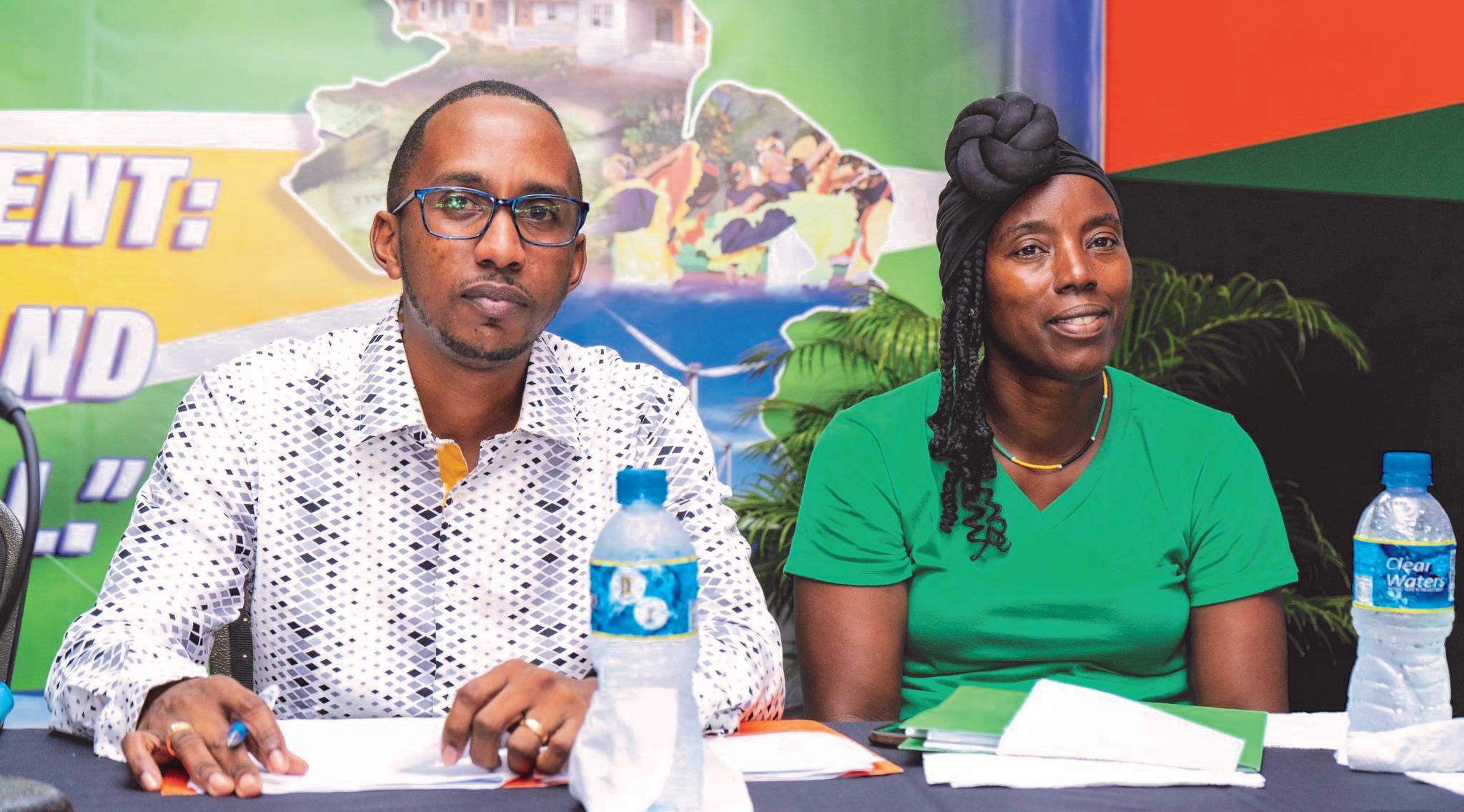

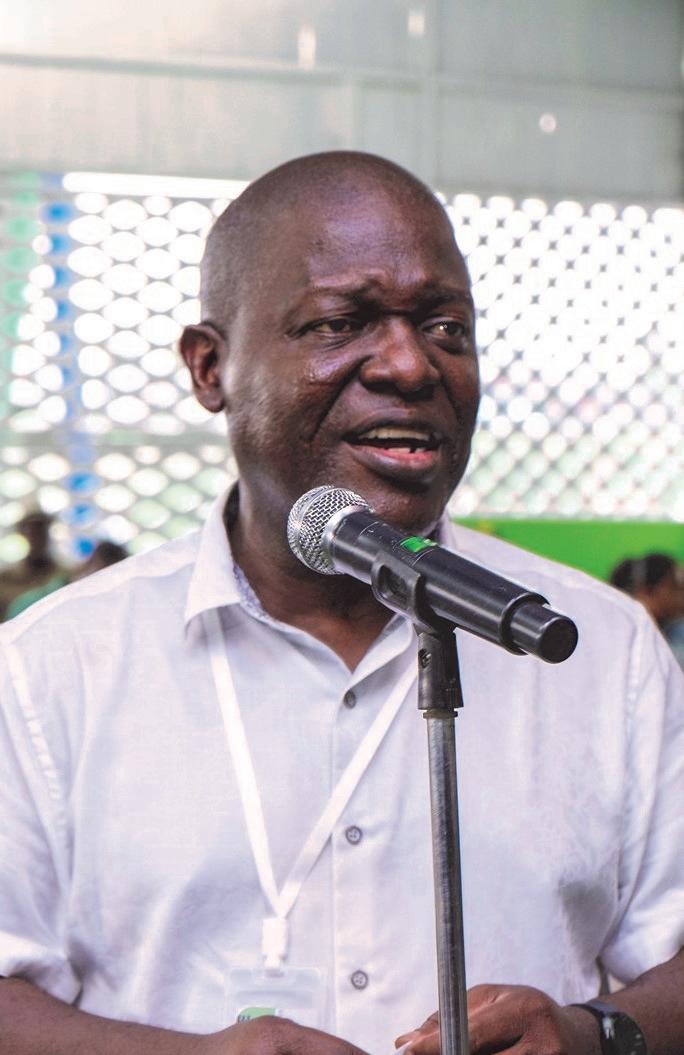
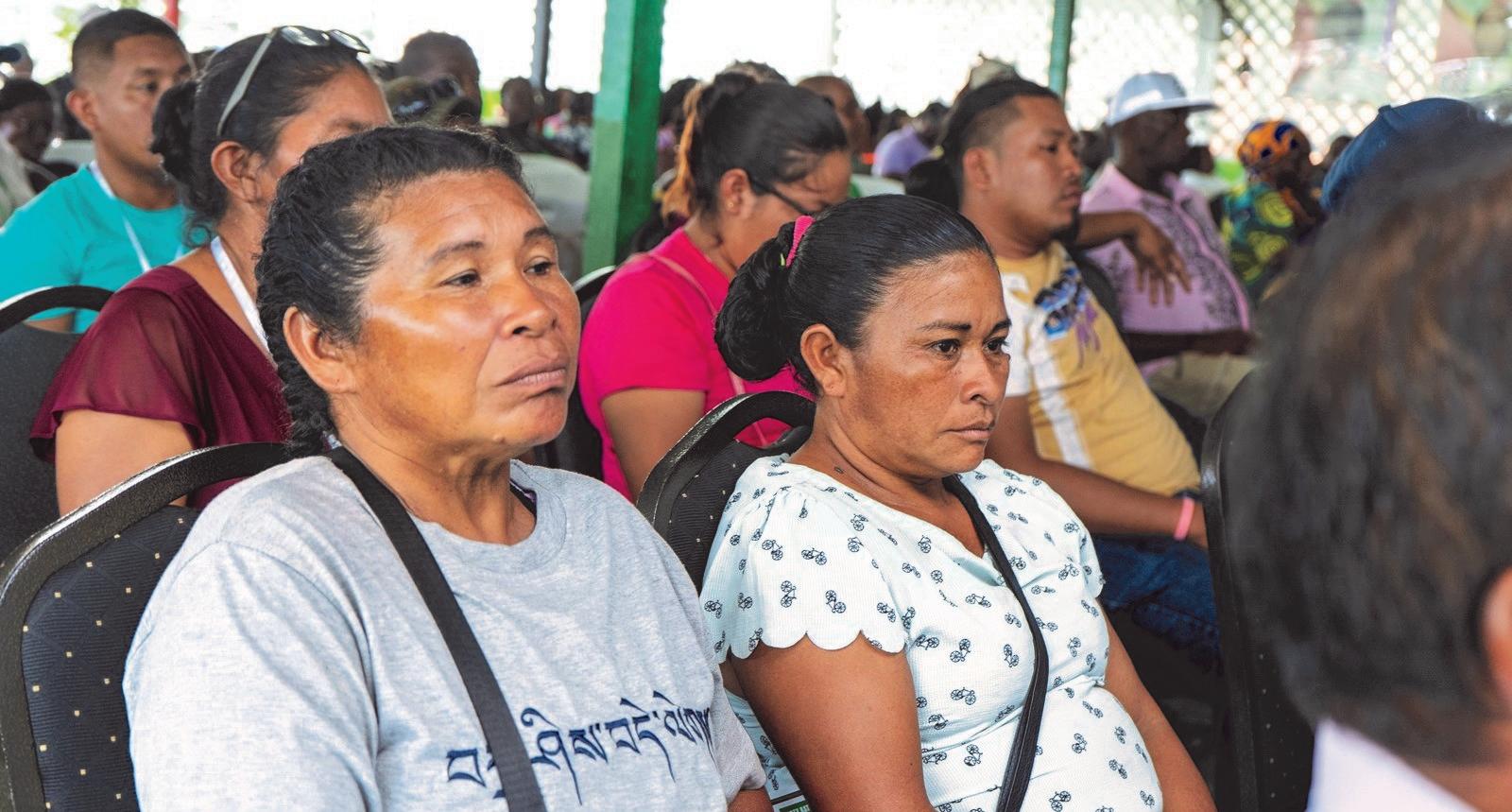
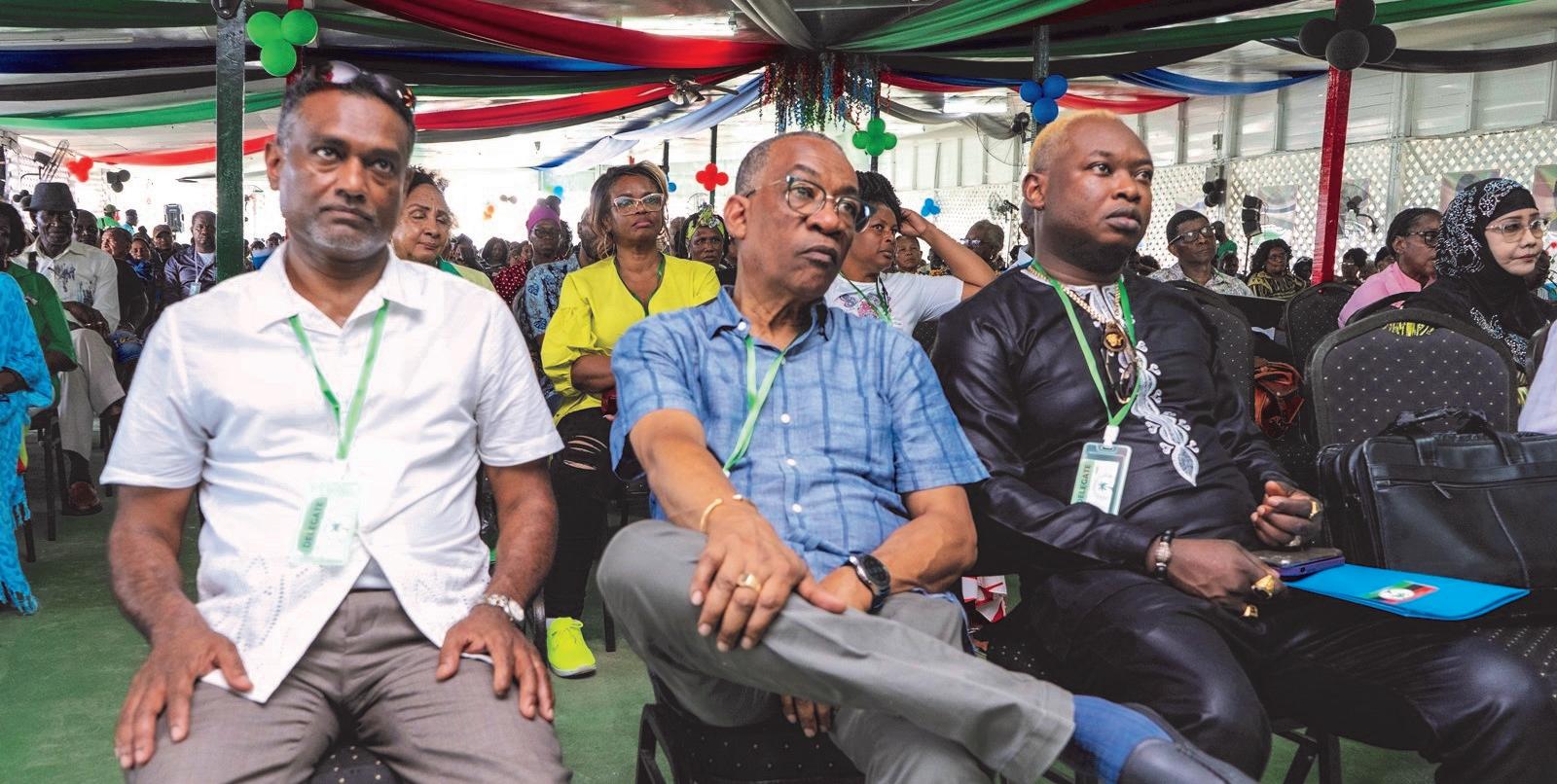
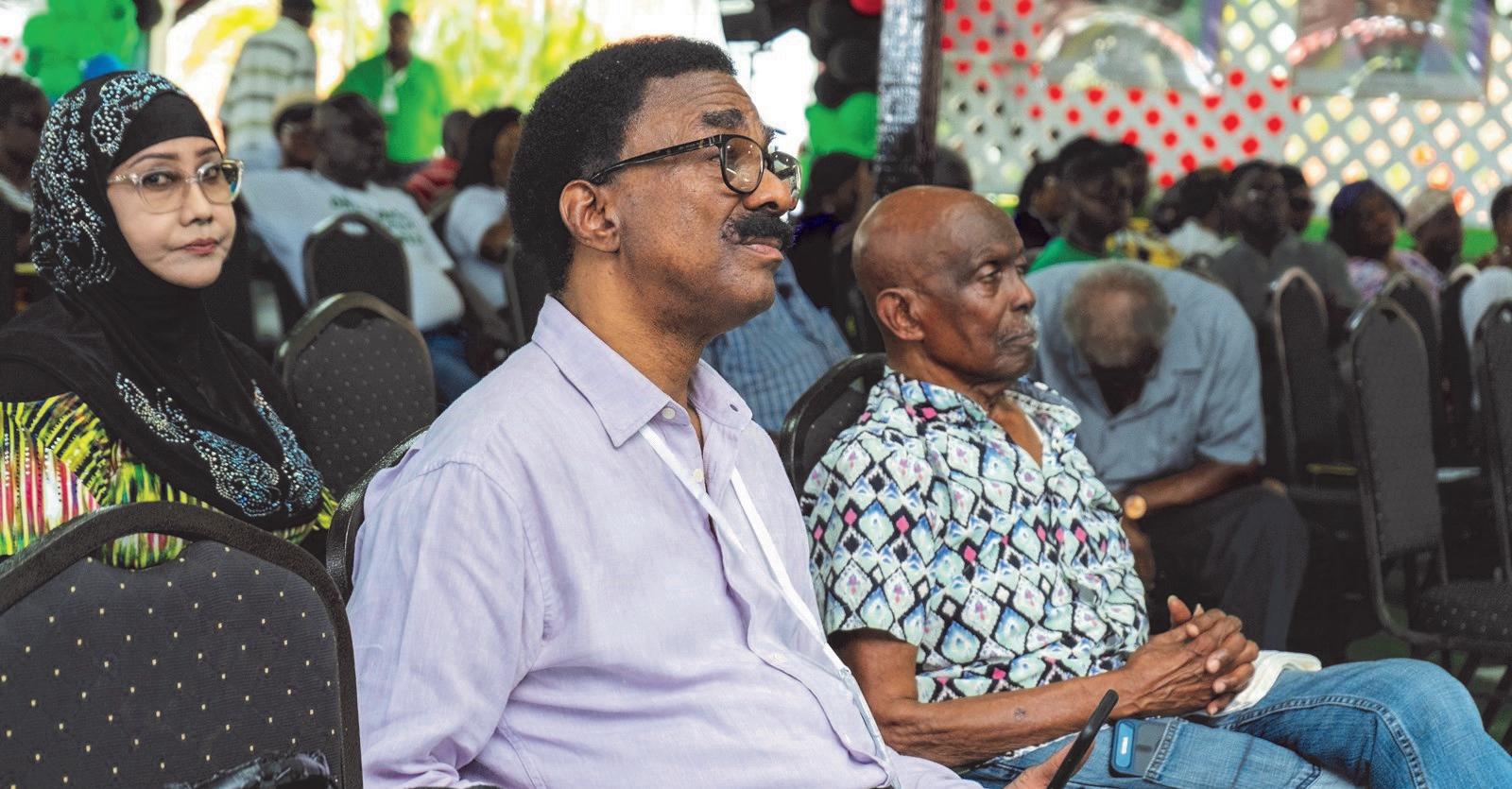
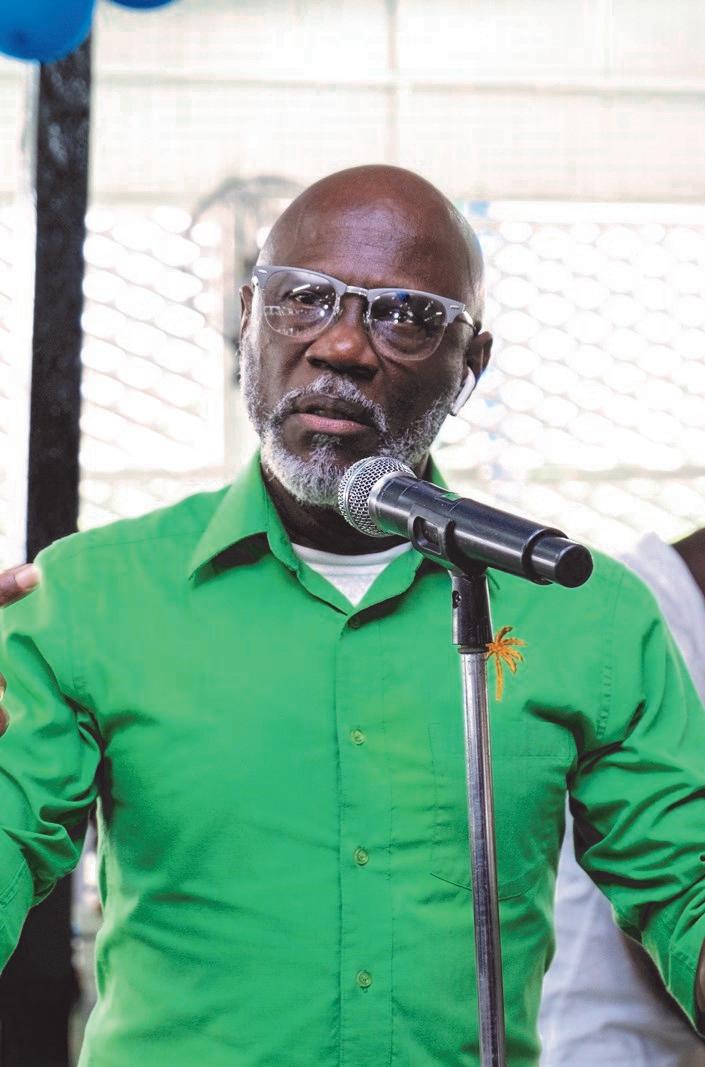


The Urgent Dengue Public Health Concern and the Failure of the PPP/C Government to Adequately Fight the Bite of the Mosquito
By Dr. Karen Cummings, MP Shadow Minister of Health
Understanding that the incidence of Dengue has increased over the past four decades and that the highest number of cases has been noted in the Americas. According to PAHO (2024), the Americas had recorded the largest proportion of the global burden in 2023, registering more than 4.1 million new infections. The Guyanese population notes the valiant efforts being made by the Ministry of Health to secure vaccines to arrest the dengue transmission and the engaging of technical partners and stakeholders such as the Pan American Health Organization to build the capacity of health care professionals to manage clinically the Aedes aegypti mosquito, the primary vector of dengue.
However, is the Health Sector prepared to avert a major public health crisis, this vector borne disease, in a climate changing world?
The Dengue virus, an arthropodeborne virus of the genus Flavivirus family presents as four different serotypes (DEN -1, DEN-2, DEN-3, and DEN- 4).
Dengue is a common tropical infection transmitted to man by the Aedes mosquito and occurs from dawn to dusk. There is Dengue Fever and the Dengue Hemorrhagic Syndrome which can progress to Dengue Shock Syndrome. The general symptoms of Dengue include high fever, severe headache, retroorbital pain, myalgia and arthralgia (muscle and joint) and a rash to the face or thorax-chest.
However, Dengue Hemorrhagic fever manifests itself with vomiting- hematemesis or as hematochezia (blood or blood in the stool), abdominal pain and difficulty in breathing. The Dengue Shock Syndrome occurs when the circulatory system fails, and is usually accompanied by tiredness, restlessness, irritableness, shock, organ impairment and death.
With 2,852 cases being positive and 265 persons needing hospitalization, with two deaths recorded eight weeks ago, and with 60 percent of the regions affected by the vector borne disease are cause for concern. With the recent death of an eleven-year-old child in Bartica, as reported 72 hours ago, seventy percent of our administrative regions have now been placed on the dengue alert.
A collaborative effort among the relevant stakeholders must be quickly undertaken. With the advent of climate change, there must be strategic efforts to involve the meteorology department to inform us of the meteorological factors such as temperature fluctuations, the pattern of rainfall, and the vector ecology. The One Health Concept, which recognizes the intrinsic link that connects human health directly to the health of animals and the environment, must not only be adopted but practiced. It has been well established that the Dengue mosquitoes are susceptible to temperature changes and rises - a range between 20 to 35 degrees Celsius. Hence owing to the vectorial capacity, there are now higher biting rates, more

transmission, and more feeds. Other drivers that can affect the vector competence will include land use changes and agricultural practices in urban settings, and a breakdown of public health. These players provide conditions for a wider spatial distribution, increase frequency, intensity, severity, and create the dynamics for increasing contact rates.
It would be foolhardy to think that the recent floods in Linden in Region #10, and in Region #5, will not create the opportunity for the vector-borne disease.
There must be better prevention and control that is inter-sectoral and involve the family and the community.
There must be a focus on Public Education and Awareness of this Vector – Borne Disease to include the reduction of breading sites and on personal protection.
Make repellants and mosquito nets free to the populace.
There should be One Health Surveillance.
The country may also need to relook the legislation on legal and illegal trade of wild- life and the legislation to protect Wildlife.
There must be sustainable vector control. There must be scheduled fogging. The environmental units of all Municipalities should have access to chemicals and fogging machines. Where is the action plan to help curb this mosquito -borne disease, Health Minister, the Honorable Dr. Frank Anthony? Interestingly, while the Minister of Health was taking a photo opportunity as he handed out certificates to 35 Community Health Care Workers in Mahdia, Region #8, the goodly Minister must have been unaware that the fogging machine was not working in the same mining community and Region.
The clarion call goes out for the PPP/C Government to make a concerted effort to reduce morbidity by 25 percent and the mortality of Dengue by 50 percent long before 2030.
What is the burden of disease in Guyana?
The populace awaits the impact of the dengue vaccine roll out.
Is there still no need to panic Honorable Minister, Dr. Frank Anthony? Could Guyana avert a health crisis?
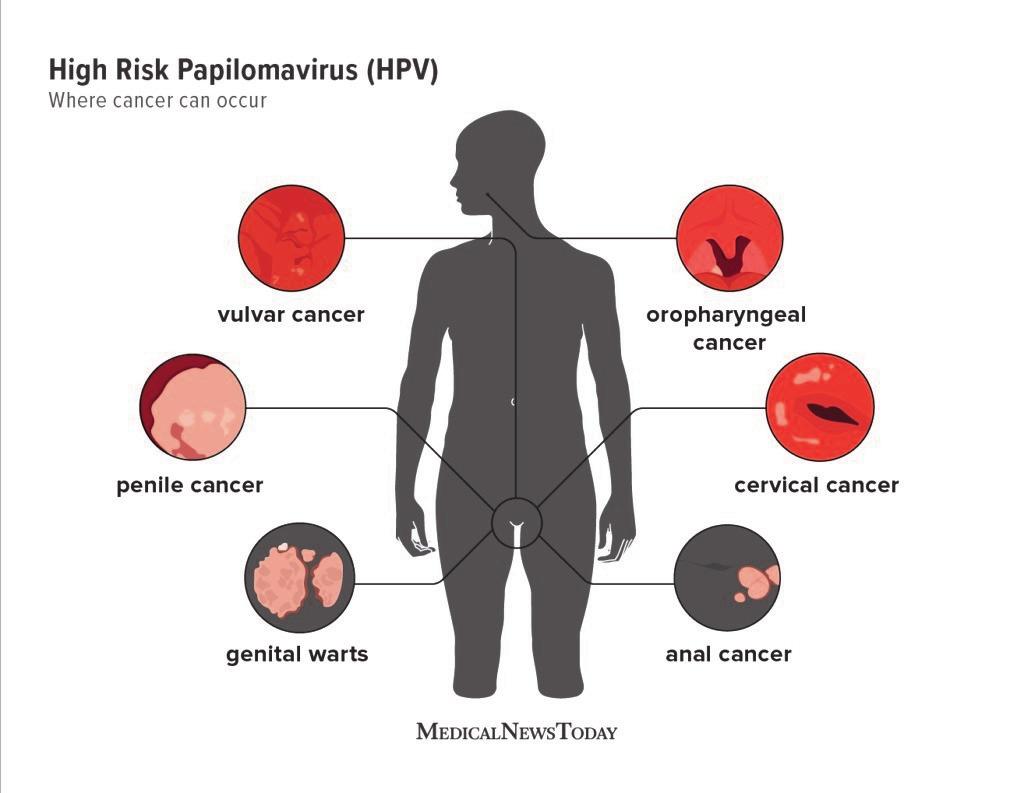
Human papillomavirus (HPV) is the name of a very common group of viruses. They do not cause any problems in most people, but some types can cause genital warts or cancer.
HPV affects the skin. There are more than 100 different types.
Symptoms of human papillomavirus (HPV)
HPV does not usually cause any symptoms.
Most people who have it do not realise and do not have any problems.
But sometimes the virus can cause painless growths or lumps around your vagina, penis or anus (genital warts).
How human papillomavirus (HPV) is spread
Many types of HPV affect the mouth, throat or genital area. They're easy to catch.
You do not need to have penetrative sex.
You can get HPV from:
any skin-to-skin contact of the genital area
vaginal, anal or oral sex
sharing sex toys
HPV has no symptoms, so you may not know if you have it.
It's very common. Most people will get some type of HPV in their life.
Important: You do not have to have sexual contact with a lot of people to get HPV. You can get HPV the first time you have sex.
Conditions linked to human papillomavirus (HPV)
Most of the time HPV does not cause any problems.
In some people, some types of HPV can cause:
genital warts.
abnormal changes in the cells that can sometimes turn into cancer.
HPV types linked to cancer are called high-risk types.
Cancers linked to high-risk HPV include:
cervical cancer
anal cancer
penile cancer
vulval cancer
vaginal cancer
some types of head and neck cancer
You can have HPV for many years without it causing problems. You can have it even if you have not been sexually active or had a new partner for many years.
Testing for human papillomavirus (HPV)
HPV testing is part of cervical screening. There's no blood test for HPV. During cervical screening, a small sample of cells is taken from the cervix and tested for HPV.
Screening is offered to all women and people with a cervix aged 25 to 64. It helps protect them against cervical cancer.
Some sexual health clinics may offer anal screening to men with a higher risk of developing anal cancer, such as men who have sex with men.
How to protect yourself against human papillomavirus (HPV) You cannot fully protect yourself against HPV, but there are things that can help.
Condoms can help protect you against HPV, but they do not cover all the skin around your genitals, so you're not fully protected.
The HPV vaccine protects against the types of HPV that cause most cases of genital warts and cervical cancer, as well as some other cancers. It does not protect against all types of HPV.
Treating human papillomavirus (HPV) infections
There's no treatment for HPV. Most HPV infections do not cause any problems and are cleared by your body within 2 years.
Treatment is needed if HPV causes problems like genital warts or changes to cells in the cervix. Ω

Day 3 of the 22nd Biennial Delegates Congress

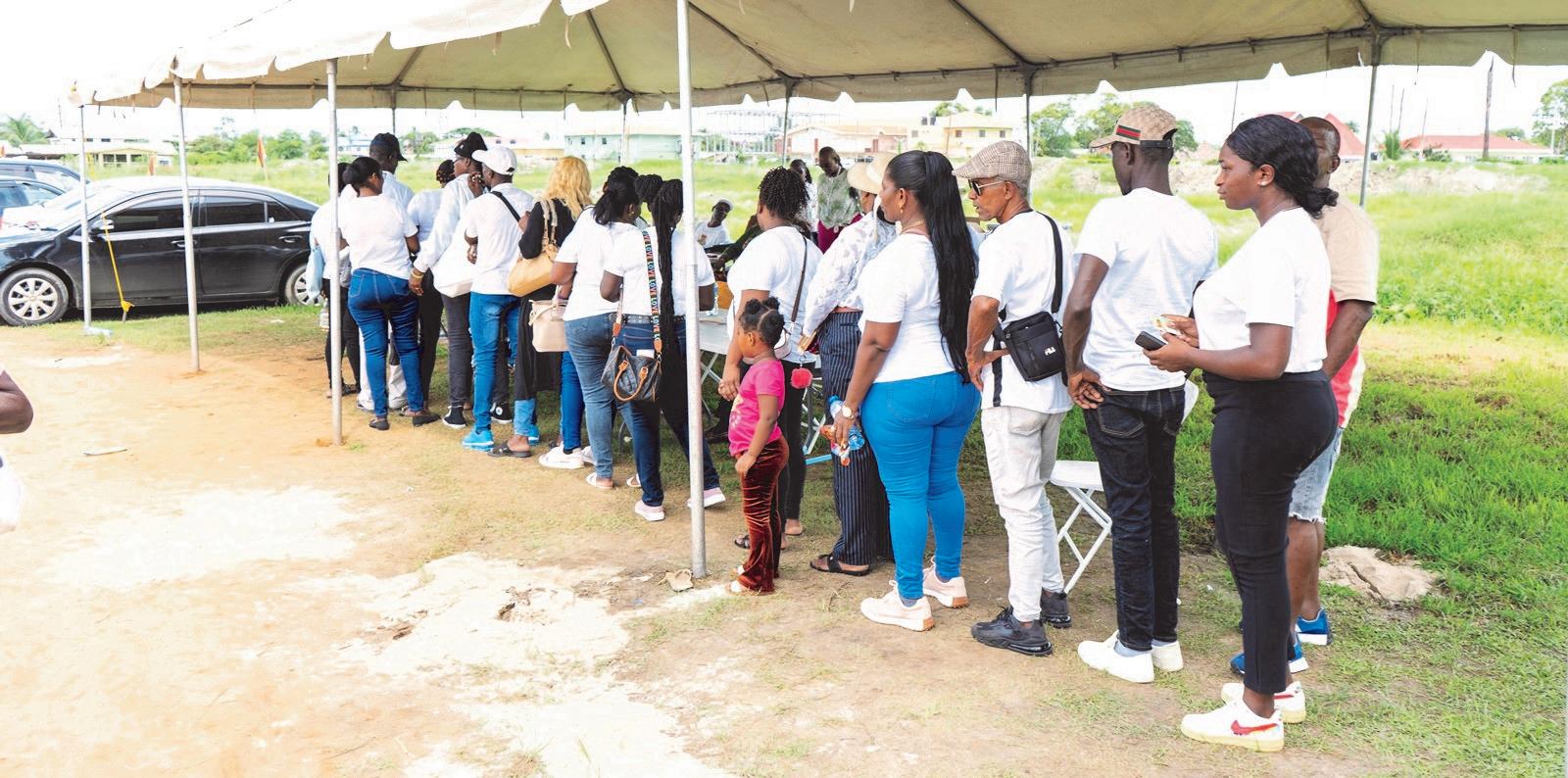
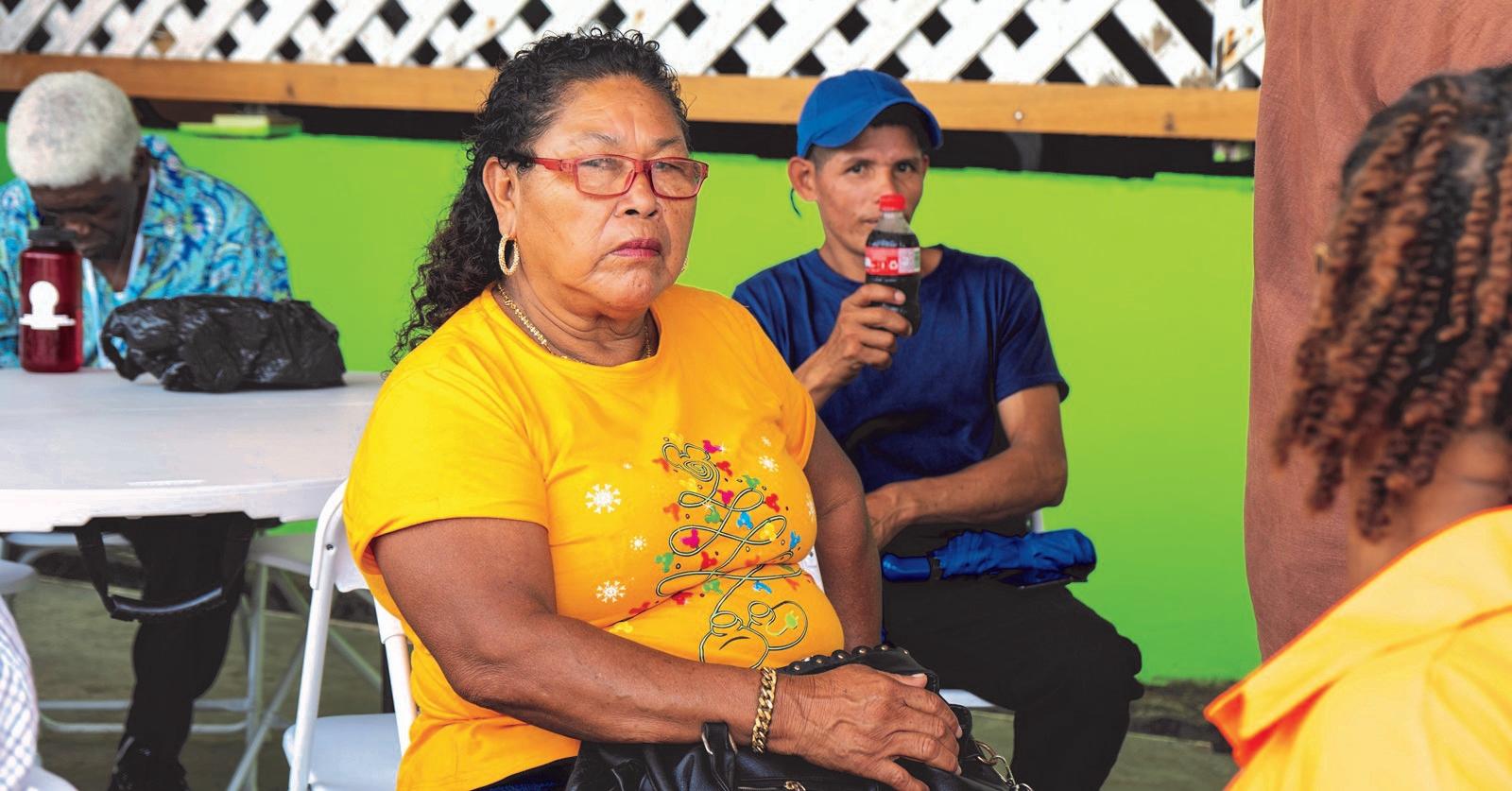



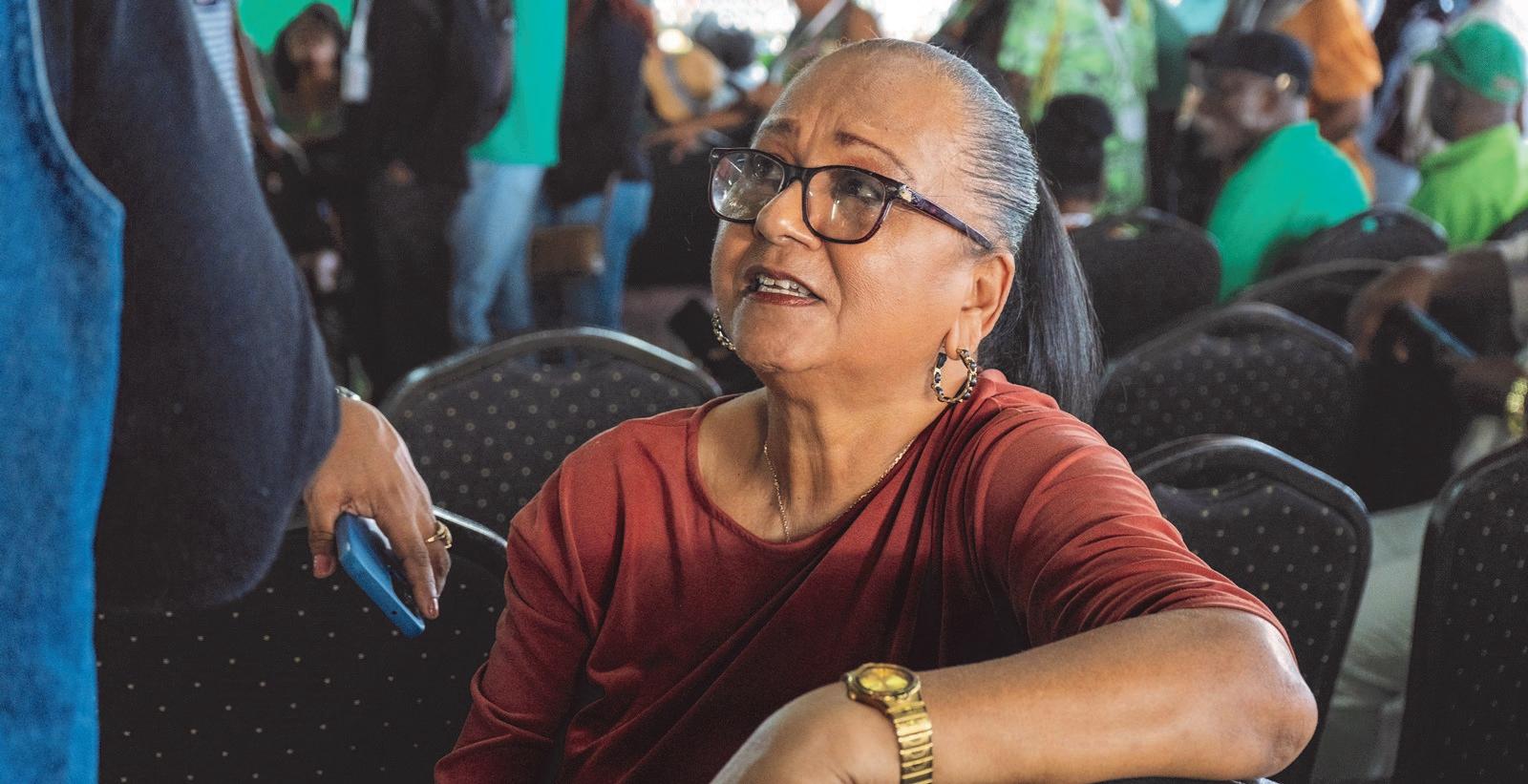
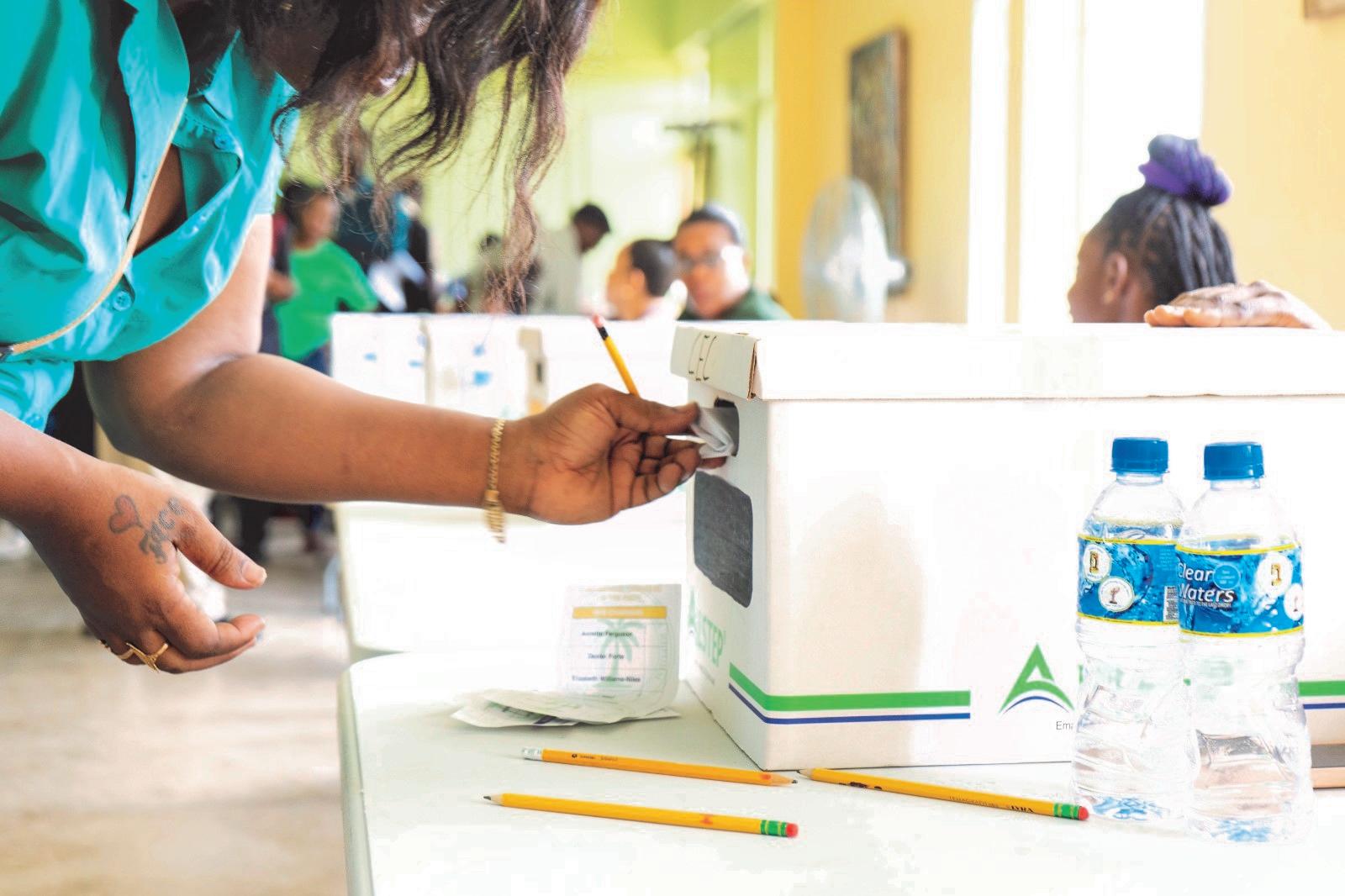

Philip Pius Duncan, Snr, JP, AA - 4th January 1943; Died 29th June 2024:
The PNCR is very saddened to learn of the passing of Mr. Philip Pius Duncan, Snr., AA, who died today, Saturday 29th June 2024 at the Lethem Hospital after a brief illness. He was Guyan’s first Indigenous Member of Parliament post-independence, and first Indigenous Minister of government.
Born on the 4th of January 1943 and raised in Aishalton, Region #9, Phillip Duncan was the second youngest parliamentarian in Guyana. He was 22 years old when he took the oath of office as a Member of Parliament.
He served in Guyana’s National Assembly for 15 consecutive years. In 1966, he was appointed Parliamentary Secretary for Amerindian Affairs. He was also Minister of State in the Burnham government.
Having served as a Minister of Government, he spent the remainder of his life as a minister of religion.
Funeral Service for Mr. Duncan will be held on Saturday 6th July, 2024 at his residence (Lethem Town) com-

mencing at 10:00 hrs - 12:00 hrs thence to St. Ignatius Cemetery for burial.
The Party expresses their deepest condolences to his wife, Edith and children. May his soul be at Eternal Rest!


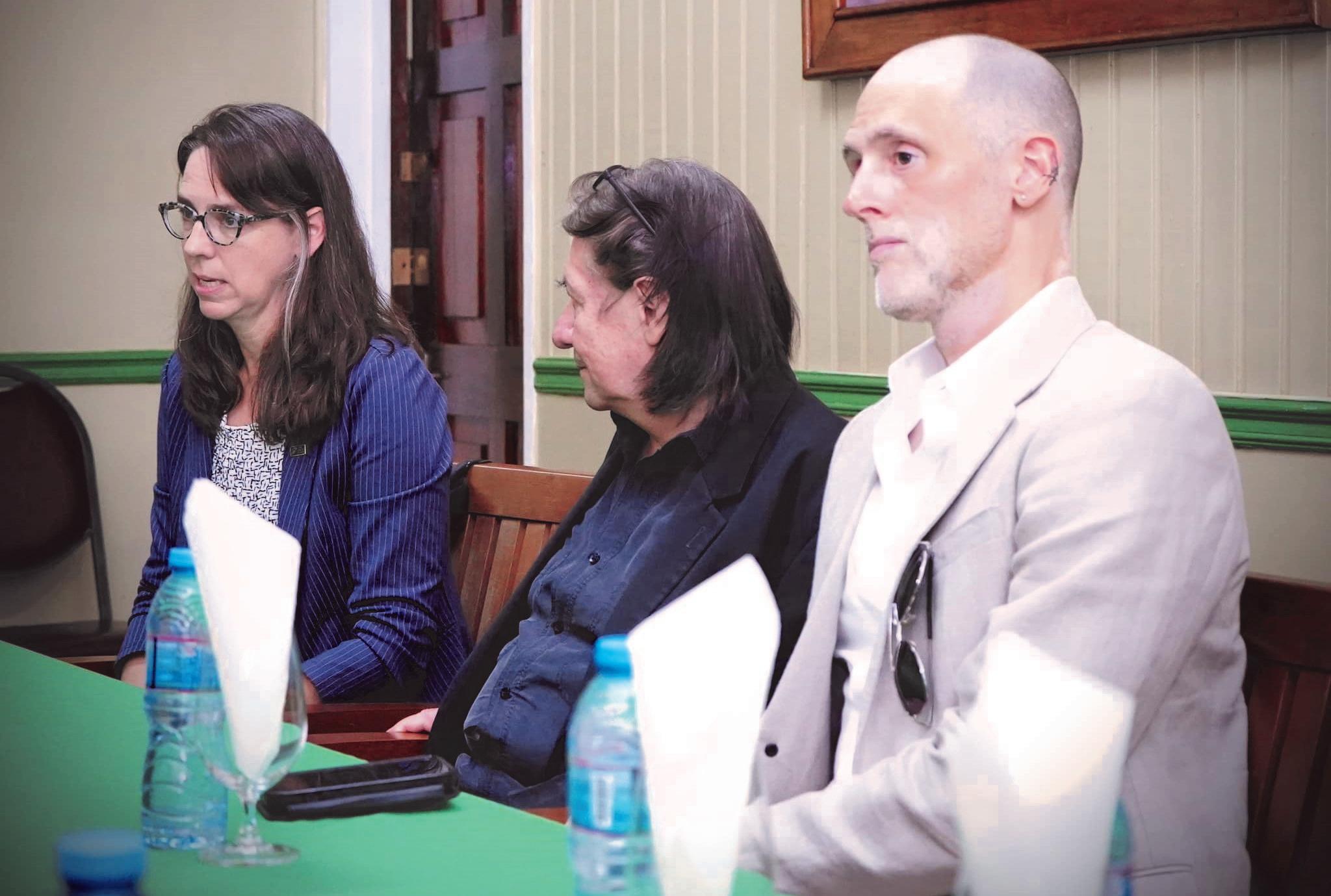
On Tuesday 25th June 2024, the Leader of the Opposition, Hon Aubrey C. Norton, MP met with a team from the Carter Center at his Congress Place, Sophia office. He was accompanied by Vice Chairman of the PNCR, Mr. Vinceroy Jordan, MP; Mr. Ganesh Mahipaul, MP and CEC Member Mr. Mervyn Williams.
The team from The Carter Center composed of Senior Electoral Advisor Carlos Valenzuela, Political Advisor Nicholas Jahr, and Democracy Pro-
gram Associate Director Brett Lacy. The Carter Center has deployed a pre -election assessment mission to Guyana to explore the current electoral and political environment and hope to better understand the status of resolution of complaints from the 2020 elections, discussion around electoral and constitutional reform, status of preparations for elections, and the extent to which The Carter Center would be welcome by all major political actors.
